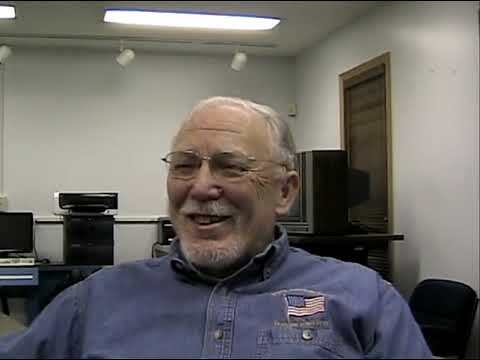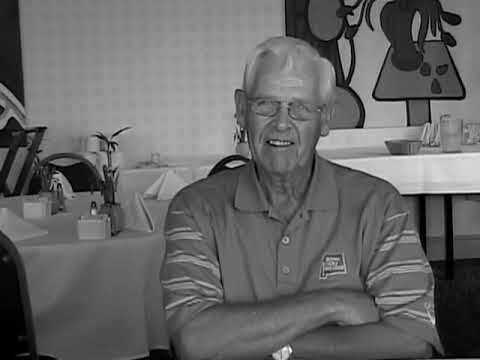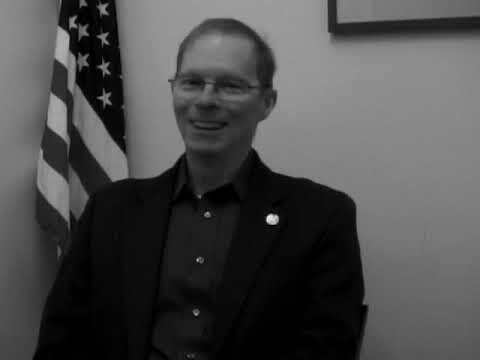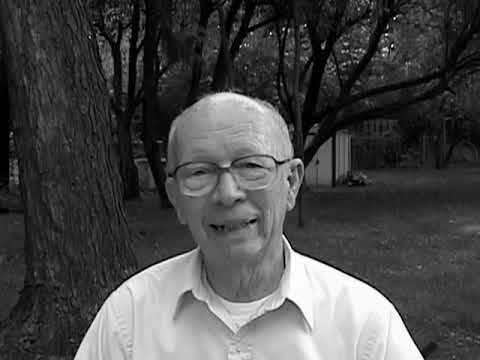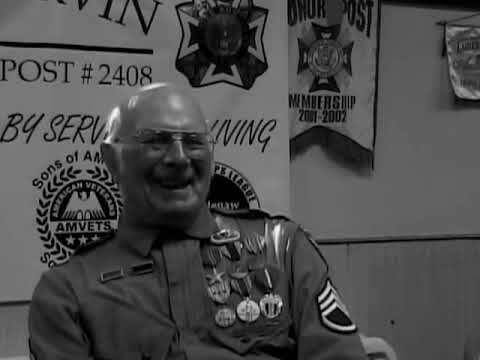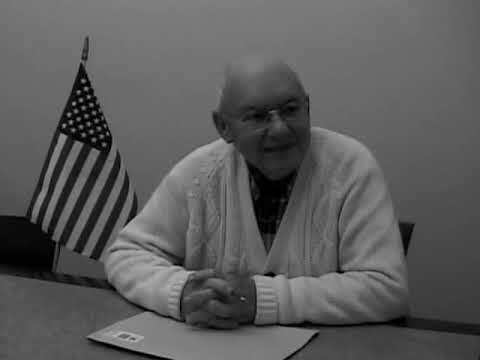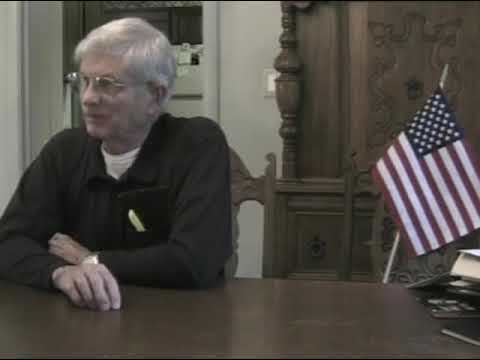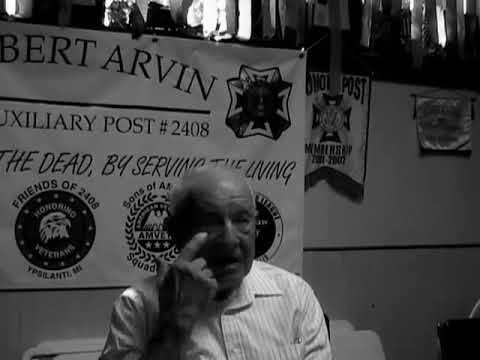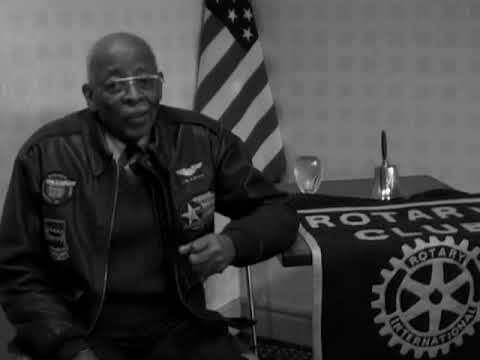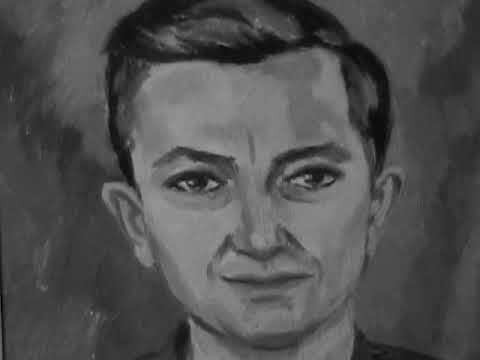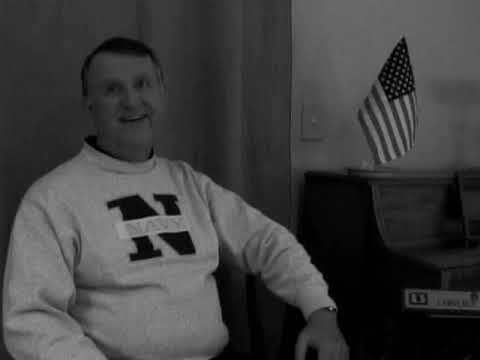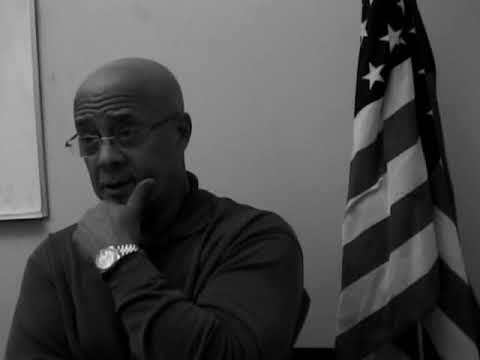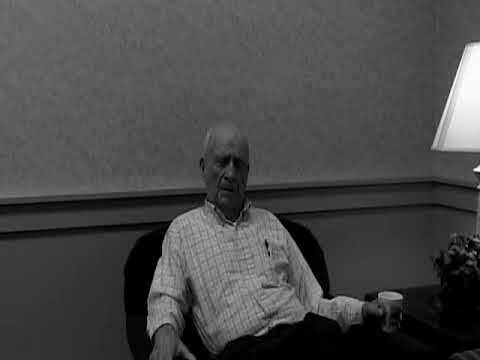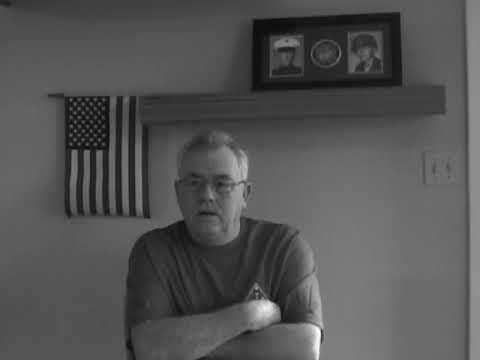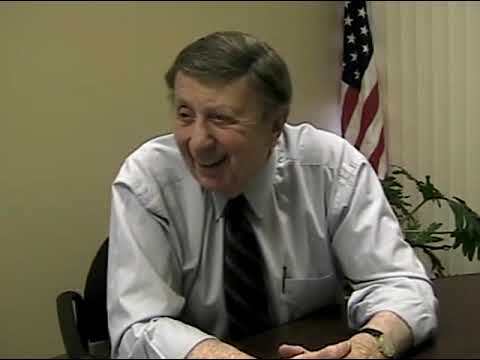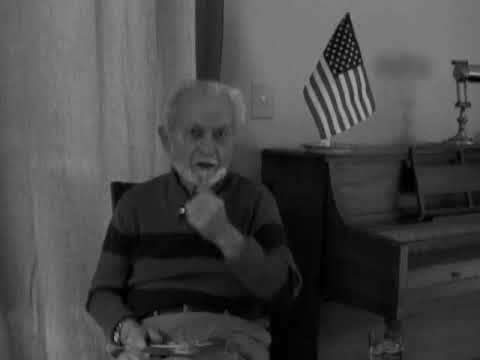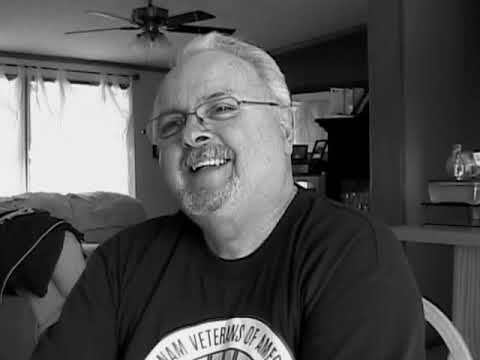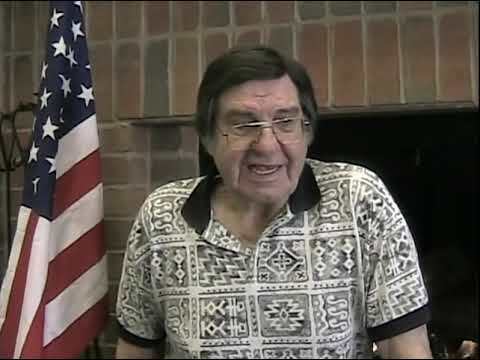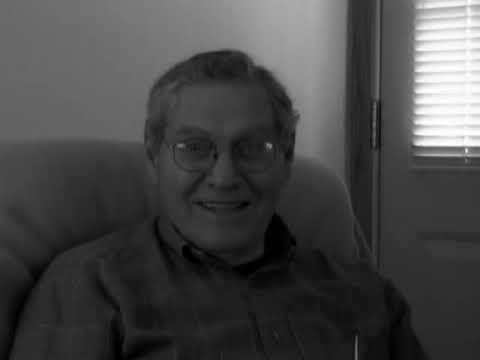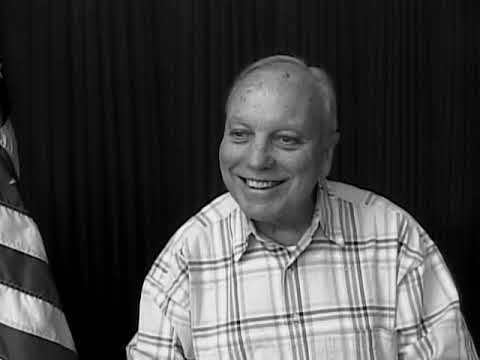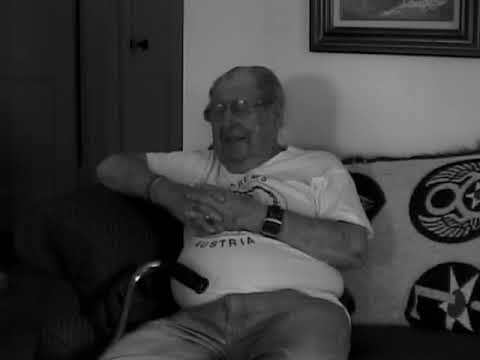Items
-
Schaedig, Merlin JohnMerlin Schaedig is a Veteran of the Korean War. He was born on 10/19/1930 in Rogers City, Michigan. He obtained the rank of Sergeant before he was finally discharged. Merlin was part of the 25th Infantry Division. His awards and citations include the Korean Service Medal, the United Nations Medal, the American Defense Medal, the ROK Service Award, and the Combat Infantry Badge. He currently lives in Ypsilanti, Michigan.
-
Schaedig, IvanIvan Schaedig was born in Rogers City, Michigan on January 28, 1932. He was drafted into the Army and after basic and specialized training, he was deployed to the Japan/Korean Theater of the war. While in Service, Ivan Schaedig obtained the rank of Staff Sergeant. He was assigned to the Heavy Mortar Company, 21st Regiment, and the 24th Division. Ivan's Citations/Awards include the Korean Service Ribbon, the Bronze Star, the United Nations Service Medal, and the Republic of Korea Presidential Service Citation. After leaving the service Ivan returned to Alpena, Michigan.
-
Scarpace, Salvatore JosephSalvatore Scarpace has been an integral part of the Allen Park community for over fifty years. He has served as the Commander of Allen Park Post 409. He has supported sponsored youth baseball for many years. Scarpace is a World War II veteran who was interviewed for the Veterans History project on March 8, 2006 at the Allen Post Hall. Scarpace was working in his family business when the Japanese bombed Pearl Harbor in 1942. He was drafted in February of 1942 and trained before being sent to Australia. He recalled his duties on the battlefield in Australia and throughout the Pacific Islands. One memory that stood out was when he actually felt the "whiz" of a shell go beside his head. Scarpace credits his good fortune to a lucky charm that he always had with him. He recalls VE day and remembers that those in the Pacific Islands believed, at the time, that the end of the war was near. He wasn't so sure in 1945 when his regiment was about ready to invade the island of Japan. Just prior to the attack, about a week he recalls, the United States unleashed the Enola Gay on Hiroshima. The signing of the peace treaty aboard the USS Missouri brought great relief and cheer for everyone, especially his regiment, who was about to invade Japan. Scarpace noted that he, and his fellow soldiers, realized that a mainland attack would have been extremely dangerous. The partying within his ranks was fierce after the signing. Upon returning home, Scarpace's family business wasn't doing well so he had to find another line of work. He soon married and would join the local American Legion. He tried to remain in contact with some of his wartime friends but as time went on that become harder and harder. He doesn't recall holding any racist attitudes toward Germans. It was just their job. He said that there wasn't much of a chance to exhibit racism, not at least in this area, toward Japanese people since very few were in the general area. Each year he attends a reunion of World War II soldiers. He says that it is something that he appreciates more and more every year. Unfortunately, each year the turnout is smaller and smaller due to illness or death. Scarpace believes wholeheartedly in supporting past soldiers of past and present wars. To him, it is a question of doing your duty. He doesn't know if he agrees or not with the reasons for the current war or Vietnam but a soldier's job is to free people of terror. His advice to the youth of today is to appreciate the freedoms that they have, and to appreciate those who fought to give them their freedom. He believes that young people now do not realize the sacrifice made by those in previous generations. At 88 years old, he continues to serve his American Legion Post and his community in a variety of fundraisers and youth activities. He is truly an American hero for all that he has done in his lifetime for the people of the United States.
-
Ripple, John A.(Ann Arbor News - June 5, 2004 - Jo Collins Mathis) Ripple was a 20-year-old kid from Monroe who had never been out of the country, and rarely been in a boat or used a gun, when he was sent to participate in the greatest invasion in history. As he headed for the beaches at Normandy on June 6, 1944, Ripple remembered what a general has just told them: This would be easy. By the end of the day, nearly 5,000 Americans lay dead in the surf and on the beaches. "On the morning of D-Day, I saw more dead soldiers in an hour than most soldiers see in a year," said Ripple, 80, sitting in his ranch home near Pleasant Ridge Elementary School in Saline. Ripple said he would have been killed as soon as he got off the landing craft, had he not bent over to help retrieve a machine gun that a fellow soldier had let slip into the water. That soldier was killed minutes later, as Ripple hurried ahead to the high-water mark. "It's very hard to explain," said Ripple. "But once you smell the smoke and have the bullets flying over your head, all you want to do is, you want to go kill. They train you to kill or be killed."
-
Reeber, CharlesCharles Reeber was drafted immediately after high school graduation. Although he was registered for the college program, he was rejected because of his eyesight. He was assigned to a mortar squad and carried the base plate. Charles was put on the line in Belgium. Things were quiet until the Germans attacked on December 16. His platoon leader was killed and left the group disorganized. His group was captured and after marching for several days they were put on trains. Eighty prisoners were stuffed into each train car and since there were no markings on the trains, Allied planes strafed them, killing several prisoners. The group was without food for several days. Charles became sick but his friends saved his life by giving him soup. Prisoners were stacked on shelves, 50 to a building. While marching to different camps, they saw stripped prisoners, Jews. One ran to them asking for help. The Brits gave him an extra uniform and he continued on with them. On April 19, 1945 the Brits liberated his camp. He was asked if he was "tortured, what was it like? "He responded, “no, however they didn't feed us for several weeks.” After being liberated, he was returned home in April of 1945 and discharged in November of 1945. He went to work at Ford where he retired after 35 years. He and his wife were married for 55 years (in 2005).
-
Post, Raymond L.Raymond Post was born in Detroit, Michigan. After attending high school, he went to the University of West Virginia. After his third year in college, General Motors offered him a job. Shortly after Pearl Harbor, Raymond enlisted in the Air Corp with the hope of becoming a pilot. The Army decided that he was not meant to be a pilot. Although that was discouraging, he felt is saved his life because practically all the people who were in training with him were killed. Raymond was sent to Virginia where he sailed for Naples, Italy. The trip over took 11 days. Besides zigzagging to avoid subs, it was stressful due to sleeping on five-high bunks, four decks below the water. There was a fire on board but they were told to stay put. Fortunately, the fire was extinguished. When they landed in Naples, they were bombed by the Germans but escaped any real damage. Raymond spent a year in Naples in an Air Operation unit. Their job was to check out the fuel and cargo, plus filing flight plans. He had a chance to go to the Palace of Justice in Nuremberg and sit in on Herman Gering's trial. Also, while in Italy he took courses from the University of Florence. Although Raymond does not have a degree, he has had extensive studies including many courses given by GM. When he left the service, he returned to GM and worked his way up to Regional Manager. Through GM, he and his wife hosted many trips to Europe, Hawaii, France and New Zealand. Raymond married his wife while he was in the service and they spent 59 and one-half years together before she suddenly died. Raymond feels that he has had a great life and is thankful for his time in the service of his country.
-
Peterson, Lee MauriceLee Peterson was born in a very small town in Iowa. After graduating from high school, he enrolled at Iowa State University. After his first year, he went to Ypsilanti, Michigan, to work in the B-24 Bomber Plant in Willow Run. While there he received his draft notice. At the time they were recruiting for all branches. Lee requested and received the Army Air Corp. After basic training and Gunnery School training, he was assigned to the 8th Air Force, 92nd Bomb Group, 326th Squadron. Lee is part of the "Lucky Bastards" group. He flew 35 missions without a scratch, plus five that were not counted. His is most proud of his DFC which he earned on a bombing raid into Germany. His B-17 lost two engines, on the same side of the plane, before reaching the target. A third engine went out over the Channel. There was an emergency air strip in Dover, England, but they decided to push on their base, 15 minutes further. They made it. The ground crew replaced all four engines, tested them in flight, and had the plane ready for another mission the next morning. During the flight back to England, Lee shot down a Me109 that was trailing them. Lee related a story about a training flight in which one engine failed. The pilot feathered the engine, but when they were approaching the field to land, the pilot gave the feathered engine full throttle, against the instructions of the flight engineer, Lee Peterson. The crew had to bail out. At the inquire, the pilot blamed Lee, but all of the other officers on board did not agree. That pilot flew 20 missions with Lee and never said a word to him other than when they were in flight. Although Lee has expressed enormous respect for that pilot's skills, he also knew that the pilot prevented him from getting promotions. After that pilot was replaced, Lee received two promotions in a very short period of time. Lee returned to the U.S. before VE day and was an instructor for flight engineers. After discharge, he returned to Ypsilanti and worked at the Kaiser Frazier Auto plant. When they went out of business, he got a job at Wayne State University. He started as a one-man department and before he retired, he had three separate sections that related to the Engineering and Liberal Arts Departments. When he retired, they held two parties because the one ballroom that held 800 was too small.
-
Pereira, Paulo JaurezPaulo Pereira was born in Passos, Minas Gerais, Brazil. He received a scholarship to go to school where he learned English. After school, he traveled to Italy where he met Americans who, in 1964, convinced him to go to the United States. In order to get a permanent resident visa to live in the U.S. he needed a job. Paulo made a connection with the foreign student advisor at the University of San Francisco. He got a job because he knew Spanish and Portuguese. However, part of his permanent visa meant that he could be drafted after living for six months in America. Paulo's job was to teach Portuguese at a Defense Language Institute in Monterey, California. Eventually, he was drafted into the Armed Forces. He was sent to Oakland, California for induction. In February 1967, Paulo was ordered to Georgia. A recruiter offered him the choice of his duty if he promised to stay an extra year in the service, increasing the term to three years. He agreed and chose to pursue chemical, biological, and nuclear warfare. He was approached to apply as an officer, but forgot about it. Paulo then got orders to go to Vietnam. Paulo chose to visit his family in Brazil before going to Vietnam. He decided to inform them of his tour in Vietnam after he was three months in. He then returned to Fort Hood, Texas. Upon arrival, he was promoted to Lieutenant. His orders to go to Vietnam were cancelled by President Nixon, and so Paulo missed the Tet Offensive. He was ordered to restart training with a year of service and was sent to Fort Bragg, North Carolina. Consequently, his salary went up considerably. Paulo was assigned to the Signal Corps and learned about communications. He also chose to undergo airborne training. He was given new orders to Vietnam as a tactical communications officer attached to an artillery unit. After arriving north of Saigon, a colonel recognized his ability to speak Portuguese. His orders were changed and he joined a group of Portuguese speaking officers in headquarters. Paulo became a part of a one-star general's staff and was in charge of communications. Eventually, Paulo was sent to Saigon to replace a lieutenant. There, he learned about the country and the war from the local people and became fascinated with the ideological struggle against Communism. For rest and recreation, he went to Japan. While in an Army hospital for minor health issues, Kris Kristofferson visited the facility. After about a year in Vietnam, he was sent home. Because of laws at the time, Paulo had to lose his Brazilian citizenship in order to become an American citizen. In order to work in his native country, he had to get a permanent visa. Paulo worked as an English teacher in Brazil for five years. He married an American woman and moved back to the United States. He began studying the flaws in Communism and was hired as an interpreter to go around South American governments to promote the "don't fall for Communism" ideology. He is grateful for his service in Vietnam mainly for how he learned about Communism. He lost contact with his fellow soldiers. He also used the GI Bill to get a Master's Degree in linguistics.
-
Parks, Robert AllenRobert Parks enlisted in the Marines following graduation from High School. He volunteered for the Paratroopers. He was especially interested in the extra $50 per month that was paid to paratroopers at that time. Bob eventually became a flame thrower operator. After his basic training, he was sent to the South Pacific. He participated in battles at Guadalcanal, Vella Lavella, Bougainville, and Iwo Jima. Bob describes Iwo Jima in detail. He said that after 120 days of bombing and shelling, the Japanese only lost 125 men. They were so entrenched in caves that the bombing did little or no harm. Bob mentioned that the historic flag raising took place before the Island was completely secured. He was part of a replacement unit that was sent to the other side of the island. It was there that he was shot in the leg. His buddy, Jim Cleveland carried him 150 yards to an Aid Station. His unit, as others, was happy about the Japanese surrender after dropping the Atomic Bomb. It seemed everyone was ready to prepare for the invasion of the mainland of Japan.
-
Paquette, Russell M.Colonel Russell M. Paquette was born in Jackson, Michigan on April 29, 1918. He attended St. Mary's Catholic School in Michigan. He attended the University of Detroit and graduated in 1941. Colonel Paquette received a law degree from the University of Detroit. He was recruited into the Marine Corps after college. Colonel Paquette did his basic training in Parris Island. Upon recommendation, Mr. Paquette attended officer training school in Quantico, Virginia. While at Quantico, Colonel Paquette learned "tough command presence" from W. W. Windsinger. He was assigned to the 4th Marine Division and continued training at Camp Lejeune, North Carolina and Camp Pendleton, California. He was sent to the Pacific upon completion of training and stationed in Maui, Hawaii. His first battle experience was on Roi-Namur in the Kwajalein Atoll of the Marshall Islands. He headed up the heavy weapons unit for the 4th Marines including half-tracks and a French 75mm cannon left over from WWI. Colonel Paquette saw action in the Battle of Saipan where he was wounded when his halftrack backed over a land mine. He was awarded the Purple Heart and the Bronze Star for his actions in Saipan. He landed next on the Northern Beach of the Island of Tinian which later became famous as the launching point for the atomic attacks on Hiroshima and Nagasaki. Colonel Paquette, amongst other Marines, made efforts to stop civilian suicides on the Tinian upon entry. He was in the 7th wave to land on the Island of Iwo Jima. His unit was responsible for bringing ashore heavy weapons and artillery. After five years of service, Colonel Paquette returned home by way of San Diego and was offered a commission in the reserves as a Major. Upon his return to Michigan, he attended Wayne State University Law School where he earned his Juris Doctorate. After law school, he worked as an attorney for the Veteran's Administration for twenty years. He was promoted to Lieutenant Colonel. Upon retiring from the Veteran's Administration, he entered private practice. Colonel Paquette has one son and three daughters. He currently lives in Harper Woods, Michigan with his wife Isabella. Colonel Paquette assisted in the development of the Marine Corps Scholarship Foundation. He also has helped to develop and lead "Ye Knights of Olde," a gathering of Marine Veterans. Colonel Paquette spent 27 years in the Marine Corps, 20 years with the Veterans Administration and 20 years in private law practice. He continues his practice to this day.
-
Olesn, Donald G.Prior to being drafted, Don had been in pharmacy school in Grand Rapids, MI for two years. After being drafted in January 1942, he received basic training at Camp McCoy in Wisconsin. He then went to pharmacy training, and into the army specialized training program (ASTP) for engineering. It was held at Kansas State College and it lasted nine months. Other programs included were foreign language and medicine. It was a large program but it was eventually closed down because the army needed the manpower to serve overseas. After several more camps for training, he was sent to Camp Shanks in New York in October of 1944. From here he was sent overseas in a navy convoy of 25-30 ships including several destroyers. His job overseas as combat engineer was connected with the 3rd army under General Patton. His unit’s job was to build and repair bridges and structures and to handle water purification units for the infantry. They welded repairs on bridges to allow for tanks use and they picked up minefields. This was done very carefully, and often with bayonets. Don landed at La Havre and then moved into Luxembourg. There they came under fire. General Patton was moving so fast that they couldn’t keep enough gas in the mechanized tanks and keep the troops completely supplied. Don stayed with General Patton’s unit all the way across the Rhine River and into southeastern Germany. Later, he went into Austria and eventually ended up in, what was then, Czechoslovakia (Czech Republic today). One story he recounts is of a Hungarian gunboat that was captured as it came up the Danube River. It was escaping the Russians, but it was caught by his unit. They joked that they had captured the entire Hungarian Navy. After the war ended, he was in Passau, an old German city, from May to November of 1945. They were occupying the area, as well as building barracks and housing for civilian refugees in Regensburg, a nearby town also in Germany. His route home was from Marseilles, France into the Strait of Gibraltar and out to sea. The voyage was not uneventful as they ran into a storm near the Azores and the ships power blew out. The flue on their ship’s boiler had blown. Luckily, another ship came along, gave them a new flue and helped them with repairs, and then they were on their way back to the US. They then landed at Newport News, VA. His last stop was at Camp Henry Harrison in Indiana and then he was separated from the army and sent home. He returned to Michigan in January 1946, and by February he was back at school. He finished his pharmacy degree at the University of Michigan on the GI Bill. He graduated a year and a half later and became a pharmacist in Ann Arbor.
-
O'Donnell, Daniel FrancisDaniel O'Donnell enlisted in the Navy when he was 18 years old. He spent eight years in the Regular Navy and five years in the Naval Reserves. After boot camp, Daniel became a gunner controller. He like the Navy in spite of the primitive living quarters. They slept in hammocks. During his time on the Arkansas, they escorted supply ships across the Atlantic. In November of 1944 they took Franklin Delano Roosevelt to Casablanca and Tehran. They also returned him to the United States in December of that year. Daniel was assigned to the USS Iowa which was assigned to support the highly vulnerable "baby carriers." As the war ended, Daniel's ship shelled southern Kyushu Island. When the war ended, Daniel's ship entered Tokyo Bay as part of the surrender ceremonies. Daniel returned home and was discharged. He eventually retired to Fox Run Residential Center in Novi, Michigan.
-
Nurkkanen, MartinMartin Nurkkanen was born October 20, 1920 in Kaleva, Michigan. He was married in 1942 and in 1943 his son was born. Martin was then drafted into the army in February of 1943. He received basic training in Little Rock, Arkansas at Camp Robinson and then went on to Camp Phillips for additional training and finally Arizona for desert maneuvers. At the time of training, his unit, the 80th Infantry was to be deployed to North Africa, but by the time they were ready to deploy, that front was closed. Instead, Martin went with the 80th over to Europe on the Queen Mary, and then on to France. Martin’s unit landed at Omaha Beach, after the D-Day invasion, and proceeded through France. While at the Falaise Gap, Martin narrowly escaped being killed by a German shell by jumping into a ditch. The blast left his backpack in shreds and he was injured by the shrapnel. After being treated for his injuries, he was told he could choose not to go back to the front lines, but he decided to rejoin the 80th as he believed they still had a job to finish, and he wanted to help finish it. Along with the 80th, Martin relieved troops at Bastogne during the Battle of the Bulge. Martin’s unit crossed into Germany, liberating a concentration camp and then went on into Czechoslovakia. After the war ended, Martin traveled back to Camp McCoy, Wisconsin and was discharged. He then returned to his job at Ford Motor Company as a quality control employee.
-
Norton, Austin J.Austin Norton was born in Ypsilanti, Michigan on June 15, 1924. His family was in the florist business, in which he admits he had no interest. After completing high school, he enrolled in Michigan Normal, later becoming Eastern Michigan University. While at EMU, he took courses that covered weather predicting. When he was drafted, they placed him in the Navy. After extensive training in weather forecasting, he was assigned to an aircraft carrier, the USS Bunker Hill. His job was to forecast weather for the flights. The Bunker Hill was the Flag Ship for the Admiral. On May 11, 1945, at sea near Okinawa, his ship came under attack. Sensing the critical moments of WWII, the Japanese began using their planes and pilots for Kamikaze attacks. Nobody saw the planes coming. Two huge explosions rocked the ship. The first plane hit the flight deck. The second hit the super structure close to where Austin was working as weather engineer. There were explosions all over the ship. Austin was trapped inside a burning area. He was able to free himself eventually and then helped the crew fight the fires. The carrier burned for 24 hours. The ship was eventually returned to Hawaii. Austin was discharged in March, 1946. He returned to Michigan and enrolled at Michigan State University, where he met his wife, Dorothy. He majored in Horticulture. He eventually went into the family florist business. Austin still feels honored by being invited to participate in a special recognition for the crewmen of the USS Bunker Hill. He was the only member of the original crew that was physically able to travel. He currently lives in Ypsilanti, Michigan, with his wife Dorothy.
-
Morrison, Harvey C.Harvey C. Morrison was born on January 28, 1925 in the city of Prairie Depot, Ohio. He volunteered at the draft board in Flat Rock, Michigan when he turned 19 in 1944. He received basic training for six weeks at Camp Hood, Texas. Then Morrison volunteered for airborne training, which he received at Fort Benning, Georgia. After this, he went to Fort Bragg where he was assigned to the 17th Airborne Division. His division went to England in late May to act as replacements, if needed. They parachuted into France after D-Day, but were well past their target due to flak and loss of altitude. It took three days to regroup with other airborne units after encountering little German resistance. Assignments while in France included holding bridges and train yards and disarming infrastructure. The 17th Airborne Division was set up in St.-Saens, France, from which they proceeded on foot to Germany. When the Battle of the Bulge in the Ardennes got underway, the 17th was sent in as replacements for the 101st and 82nd Airborne in Bastogne, Belgium. Morrison remembers the severe fighting and even more severe weather, which was made worse by their lack of winter gear. He was wounded in Bastogne but soon returned to full service. He carried a standard rifle along with a BAR and a Bazooka (used to take out German emplacements). He received Special Forces training and was authorized to wear a "T" under his Corporal bars. His company crossed the Rhine in a glider and secured Wesel, Germany. From there they went to Hamburg and Dusseldorf, encountering slow house to house fighting. Along with 17 other men, Harvey captured the son of a German diplomat named Von Poven in the Ruhr Valley. In April they began occupation training in Dusseldorf. It was there that they received word of Germany's surrender and were sent to Nancy, France to receive training to go to Japan. Three days out on their way to Japan, the atomic bomb was dropped and the men began to go home. Harvey returned home in January to a parade in New York along with his division. From there, he returned to Fort Bragg and was called back into service before the outbreak of the Korean War. His job was to handle reservist and draft papers in Fort Wayne near Detroit and Battle Creek, Michigan. Due to his and his wife's stay in hospitals, Harvey was not sent over to Korea during the conflict. Harvey was awarded the bronze star for meritorious service.
-
Minzey, Jack DeVereWhile in college at Eastern Michigan University, Jack joined the Naval Air Reserve. He received a notice from the Ypsilanti Draft Board in August 1951 and volunteered the for a two-year term in the U.S. Army. Jack was inducted into the army at Fort Custer in Kalamazoo, Michigan. After basic training, Jack received his military occupational specialty as a cryptographer. After going through cryptography school, he was kept on as an instructor for a while. Then Jack received his Far Eastern Command and traveled to Camp Stockton, California where he boarded a troop ship for a 17-day trip to Camp Drake, Japan. He was assigned to the battalion headquarters in Yokohama, Japan. While in Japan, Jack was on the Honor Guard, in charge of quarters, and played on both the company and battalion basketball teams. Jack returned to teaching in Michigan after his tour of duty was completed. He obtained his masters from the University of Michigan and his doctoral degree from Michigan State University. Later on, he went on to work for Michigan State University, the Michigan Department of Education, and finally Eastern Michigan University where he retired in 1992.
-
McLogan, Edward AustinEdward McLogan was born in Flint, Michigan on April 2, 1920. He entered the Army as a Second Lieutenant after graduating from the University of Michigan in 1942. He was eventually sent to the Solomon Islands in the South Pacific. Since he was single at the time and 23, he volunteered for Merrill's Marauders. He spent time in Burma on some very dangerous assignments. At one battle, Lt. McLogan decided to pull his platoon back to a less vulnerable position. At dawn they heard cries of "Banzai" and Death to the Americans." The Japanese followed with a barrage of grenades on the position previously held by Lt. McLogan's platoon. They let the Japanese come down to within 15 yards before opening up. The discharge of 40+ weapons was devastating to the Japanese. During his service, Ted received a Bronze Star, a Purple Heart and a Combat Infantry Badge. He is a member of the Ranger Hall of Fame. Ted was a Captain and later in the Michigan Army Reserves was promoted to Major.
-
McCrumb, Vance LeeVance joined the service right after high school. He was always fascinated with airplanes. After basic he volunteered for K-9 duty. He had to go through Air Police training and then Sentry Dog School. He was assigned to guarding B-52s in Oklahoma before being sent to Vietnam. In Vietnam, Vance patrolled the perimeter of the base with his dog, Dutch. He and Dutch went through training together. Dogs were trained to detect intruders and also Booby Traps. Sentry duty lasted all night and they were responsible for the integrity of the base. Handlers would alert the Air Police when an intruder was detected. Although Vance's unit received a Presidential Citation and an Outstanding Unit Award with the V device for Valor, he was most proud of the Good Conduct Medal. In the Air Force, a person needed good conduct for three years, which he admits was difficult. Vance had a difficult time transferring Dutch to another handler. "Not a day goes by that I don't think of Dutch." After Vietnam, Vance was again sent to Oklahoma to guard armed aircraft. Upon discharge, Vance returned to Michigan and eventually retired as a Supervisor at AT&T. Vance is married and has two children and eight grandchildren. After his retirement from AT&T, he took a job at Milan Precision. Vance is very active in the community and in Vietnam organizations.
-
McAndrew Jr., Atwood RichardsonAtwood McAndrew Jr. was born on July 2, 1920 in Ypsilanti, Michigan. In his senior year of college, Atwood enlisted in January, 1942 and was allowed to graduate in May. He was sent to Notre Dame, Indiana for indoctrination and then to Tower Hall in Chicago, Illinois for three months and came out as a line officer. Atwood was allowed home for Christmas and after New Year’s Day was sent down to Miami for training in anti-submarine tactics. He was then taken to Quebec to commission the U.S.S. Haste as a stores officer. Progress was delayed because the St. Lawrence River was frozen, but they set out for Boston after two months. Atwood returned to Miami, Florida for more schooling and after two months was sent to Norfolk, Virginia to become an anti-submarine and gunnery officer on the DE48 U.S.S. Doppler. The Doppler's job was to escort convoys made up of Liberty ships across the Atlantic to North Africa and the Mediterranean. It usually took three weeks to cross due to the speed of the Liberty ships. Atwood remembers that on their first trip they watched the film "Casablanca" and then landed in Casablanca in North Africa. Other ports in which the Doppler docked included: Tangier, Oran, Algiers, Tunis, Bizerte, Gibraltar and Palermo. The Doppler's convoys never lost a ship, distinguishing the Doppler as the first escort to not lose a ship in the Mediterranean. One event that stuck out in Atwood's memory is when the Doppler was attacked near southern France by torpedo bombers. The Doppler crew was able to shoot one bomber down. The Doppler also served as a submarine target ship in New London, Connecticut for two months. The Doppler was decommissioned at the Brooklyn Ship Yard at the end of the war. Atwood was transferred as a lieutenant serving as executive officer to the DE102 U.S.S. Thomas which served as a mother ship to a captured German U-Boat. The Thomas was involved in the Seventh Bond Tour that sailed from Norfolk, Virginia to Key West, Florida to the coast of Texas. The Thomas was decommissioned in Green Cove Springs, Florida. Atwood was mustered up to Chicago, Illinois where he was transferred to the Naval Reserve on April 13, 1946, ending his service.
-
Maleski, Doris L. ElkaDoris Maleski was born May 20, 1921 in Willis, Michigan. She was an important member of the "Rosie the Riveter" generation war effort. Doris started out as the manager of a small grocery store that predated the super market. Her brother suggested that she get a job at the bomber plant in Ypsilanti, Michigan which she did in the spring of 1942. Doris started her work in the tool crib. One day one of the foremen asked if she could work on the line. As long as they would train her, she was willing. She drilled the holes for the brackets that held the oxygen system. She became confident-very quickly, but too confident. After a few weeks on the job, she made a mistake and drilled a hole in the wrong place. She was sure that she had ruined the entire plane. When she told her foreman, he merely laughed. He pointed out that everything got inspected down the line and any mistake would be set aside for correction later. In spite of his assurance, Doris was upset all day. After that she never again became too confident. Doris lived only 11 miles from the plant. She would ride to work with her brother. Soon after taking the job, she bought her first (used) car. The owner was going into the service and did not want to leave it unused until he got home. So, Doris bought is for $1,100. Since she only had $800, she went to the bank for a loan. Since her father was an official of the bank, Doris got her loan. Soon she was driving three others neighbors to and from the plant. There were always rumors about the plant being a target for the enemy. Although she was not frightened, she was encouraged to take a first aid class in the plant. Doris also bought and sold War Bonds. They came in handy when she and her husband were building their house. The plant had only one plane crash while being tested, which is phenomenal when considering all of the planes that were made at the Willow Run plant. Her father used to tease her and would say he was going to hide in the house when the planes came over because he never knew which she worked on. Doris' finance was in an Army Anti-Aircraft unit on Long Island. When he was scheduled to go overseas, the War ended. They waited until the War ended to get married because her father was against them marrying in Wartime. Doris' husband worked two jobs most of their married life. In the morning, he worked as a milk trucker who took the milk from farmers to the dairy, and in the afternoon, he worked as on automobile mechanic. He died suddenly of a heart attack. A few years ago, Doris met a pilot who flew the Liberators. He praised them saying they were very reliable. Doris was also present at the Yankee Air Museum in Ypsilanti when the "Rosie the Riveter" stamp was released. She is especially proud of the Museum and hopes to place her very extensive scrapbooks there when the new museum is built.
-
MacGregor, Mildred A. RadawiecMildred MacGregor was born November 2nd, 1912 in Detroit, Michigan. After graduating from Hamtramck High School in 1931, she got her Registered Nurse Degree from St. Joseph Mercy Hospital in Ann Arbor, Michigan in 1934. She did Private Nursing Duty for eight years at the University of Michigan and St. Joseph Mercy Hospitals until World War II was declared on December 7, 1941. Mildred joined the United States Army Nurse Corp on October 30, 1942 and went overseas on December 7, 1942. She served with the Third Auxiliary Surgical Group, a new experiment in war to operate close to the front line, as a surgical nurse to save severely wounded soldiers who might not otherwise survive. She served in the Tunisian, Sicilian, Normandy, Northern France, Ardennes, Rhineland, and Central Europe Campaigns. She was discharged in February of 1946. Her decorations and citations include: Meritorious Unit Badge, American Theatre Ribbon, EAME Theatre Ribbon w/one Silver Battle Star and two Bronze Battle Stars, five Overseas Service Bars, and the Victory Medal. ASR score on September 2, 1945, was 102.
-
MacDonald, Bille K.Billie K. MacDonald joined the Army in 1940 as a result of limited employment in his rural Michigan farming community. MacDonald ended up making the military his life's work in three branches of the service. MacDonald joined the army two months after he graduated from high school, and became what he calls a "cog in the machine." This refers to a soldier who did what he was told, where and when he was told to do it. For several years, MacDonald participated in training in the U.S., Iceland and England, until he landed on Omaha Beach, two days into the D-Day invasion. An expert rifleman, MacDonald was on duty on the nights the men were shuttled to the beaches. His job was "to shoot at anything that was flying over." Luckily there was nothing to shoot at. MacDonald said, "I thought it was kind of silly, trying to shoot a bomb in the middle of the night." When they landed, "it was chaos, there were ships all over that the Navy had scuttled to act as breakwaters." Serving in the 61st Coast Artillery, Battery F, 2nd Battalion, MacDonald was a truck driver carrying ammunition in the front, and POWs in the rear. The German soldiers were crammed into the open truck bed, standing packed "like cordwood," with no guard. They needed none, according to MacDonald, because "the war was over for them. I think they were relieved." Drivers were given instructions, and shown maps they had to memorize, but were never allowed to write anything down, because they were in enemy territory, and could be captured. His main campaign battles included Normandy, Ardennes, Rhineland, Northern France and Central Europe. He returned to the United States in July of 1945. When MacDonald returned, there was still no work in Michigan. In August 1946, MacDonald joined the Navy. "I thought, well, I'll join the Navy, and I'll learn photography. I thought that would be a good thing to get into. But after 10 years in the Navy, I never even saw a camera." In the personnel and accounting office, MacDonald worked at the Great Lakes Naval Training Center, in San Diego, Hawaii and Norfolk, until 1956. It was during this stint he met his wife, Mary Gilbert, who was also in the service, an intern reporter working on a newsreel made about his office. "Before my enlistment was up, I was married and had three kids." He left the Navy because "I'd seen all those people." The day after he left, he enlisted in the Air Force, still in personnel and accounting. "I guess middle age came over me, there was a lot of talk about the Air Force," he said, and spent nine years in the U.S. and Wiesbaden, Germany. They had no money, but the family traveled Europe on a shoe string, until he retired in 1965 with 25 years of service. "I enjoyed it. I liked it. I certainly didn't get rich. It was a job. You knew where you were going to sleep, where you were going to get your next meal. You met a lot of people and traveled a certain amount."
-
Lynn, David ErvinDavid enlisted in the U.S. Navy in July of 1969. Since he was a college graduate, he was the oldest recruit in his class. After some specialty training, he was assigned to the Carrier U.S. Saratoga. David visited many countries, including Spain, Portugal, and Italy before traveling to the China Sea. Here it was his job was to maintain the jets that were bombing North Vietnam. David’s ship was usually far out at sea, but occasionally it moved inward where he could see land. He described that as a tense time. "If we could see them, they could see us." Upon being discharged from the Navy, David took an engineering job at Honeywell. When Honeywell downsized and moved south, David took a job with a local aircraft company. David now lives in Ypsilanti, Michigan with his second wife.
-
Lund, Ralph QuentinRalph Q. Lund was born in Alpena, Michigan on October 2, 1925. He enlisted in the Army on August 12, 1943. After basic and specialized training, he was assigned to the 1255th Combat Engineering Battalion. Ralph was sent to the European theater. He eventually was promoted to the rank of Sergeant. Before leaving Service, he was awarded the European Theater Ribbon and the Army of Occupation. When he was finally discharged on April 2, 1946 he returned to Alpena, Michigan.
-
Luher, JonJohn Luher served in the United States Army during the Vietnam War Era. He served the majority of his time in Panama.
-
Lindhout, William PierceWilliam Lindhout was drafted after one year at Michigan State University. He received his basic and specialized training at Great Lakes IL, Millington TN, Hollywood FL, New Bedford MA, and Oceana VA. He was then assigned to the VT 82 Torpedo Squadron. Lindhout had 33 missions as an aviation radioman (which included gunner and photography duties). His missions included support of several Pacific Island landings, and participating in the first Navy strike on Tokyo. Lindhout's medals include the Distinguished Flying Cross, five Air Medals, Pacific Theater, Atlantic Theater, and the Unit Citation. His DSC reads in part, "in action against enemy Japanese forces in the vicinity of Honshu, Kyushu, Nanpo Shoto, and Nansei-shoto - Lindhout contributed materially to the success of his plane and to the inflictions of damage to enemy shipping, airfields, and installations. His courage and devotion to duty were in keeping with the highest traditions of the United States." This veteran's other citations were equally complimentary regarding his courage and devotion to duty. After leaving the Navy, Lindhout completed his studies in Architecture at the University of Michigan. His company has a very long list of buildings that they designed. Although semi-retired, he represents the third in a line of four generations of architects.
-
Lillie, Gary L.Gary Lillie was born in Detroit, Michigan on May 5, 1941. He grew up in a mixed ethnic neighborhood. He completed his high school education in Detroit, but remarked that his school has been run down since he attended. He joined the Navy reserves prior to joining the Sea Bees. He was the third of four boys. He heard a great deal about the military experiences of his uncles who were in many major battles during World War II. Gary enlisted in the Sea Bees after basic training and volunteered for Vietnam. He tells the story of his CO changing the location of their camp moving six miles to the west. The next day they discovered that the original site was attacked and nothing remained. Gary was involved in setting up numerous camp sites for the Marines while he was in Vietnam. Although his Unit experienced many overhead attacks, his Unit did not experience any casualties. When he returned to Michigan, he had lots of problems that led to heavy drinking. It wasn't until 1989 that he sobered up. Gary worked as a carpenter when he first returned home but eventually ended up in real estate. Gary is active in the Vietnam Veterans group. In the early years after returning, he was shocked by the hostility people had towards Vietnam veterans. He is thankful those feelings are not present today.
-
Levenick, Richard LeoRichard Levenick spoke of his early memories attending high school in Michigan when WWII started in 1939. He started studying chemical engineering in college in Wisconsin when he enlisted in the Army. He was tested while in the Army and was selected for a top-secret program developing "Auto Pilot" systems for the Army Air Corp. His training was done in the middle of the night in a classroom. They were not allowed to take any materials to or from the training areas, and they had to memorize everything. Dick talked about being shipped out to England with the 18th Bomber Squadron of the 34th Bombing Corp. He was stationed in the countryside in England just north of London. He was tasked with checking the auto pilot systems before and after the bombing missions over Germany. Dick said he recalled seeing thousands of planes flying overhead on the day that D-Day began. He recalls the bombers would return and then leave many times during the initial invasion and throughout the next few days. He also remembers when the Battle of the Bulge began and also remembers V-Day quite vividly. Dick recalled that after the 100th bombing mission, the group was allowed to throw a party. He talked about how wars will always exist unless humans can "evolve" past conflict to settle disputes.
-
Laws, Richard AllynRichard Laws was born in Michigan on May 1, 1923. After high school, he became a door-to-door salesman for Awrey Bakery Co. He did so well that he bought his own truck for $880 and paid it off in the first six months on the job. Richard even helped his parents buy their house. At the time, Richard was not allowed to enlist in the military because the Government had closed enlistments. He was eventually drafted and volunteered for the Paratroopers. He was assigned to the 511th Heavy Weapons Division. Richard (he likes to be called Dick) made a total of 25 jumps and 6 of those were in combat conditions. He was in constant battle for a year and a half which included his time in Guinea, Leyte, Luzon, and Okinawa. It was in the Philippines that he lost his best buddy with whom he had planned to go into business with at the end of the War. Dick's company was assigned with the task of creating a diversionary battle in order to draw the Japanese away from Los Baños Interment Camp where 2,200 American, Australian and various other civilians were being held. It was believed that the prisoners were only days away from being executed since the Japanese were withdrawing. All prisoners were rescued without any casualties. There were a number of nuns in the Camp. When they saw the parachutes coming down, they said the "Angels were coming." Dick's unit adopted the White Angel designation for their Unit. From the Philippines, Dick's unit was shipped to Okinawa, days before the Japanese were driven out. In August, two Atomic Bombs were dropped on Japan, which convinced them to surrender. Dick was picked to put together a unit to land in Japan and prepare for the others who were to arrive later. There were some tense moments when they landed, and Dick told his group to keep the door locked when he deplaned. If there was any trouble, they were told to take off without him. Although tense and difficult because of the language barrier, the situation went well. Dick became the first American to set foot on Japanese soil. Dick became a member of General MacArthur's Honor Guard. In appreciation, the General gave him a Japanese sword and two rifles as thank you gifts, all of which he still has. Dick's citations include: Good Conduct Medal; Bronze Star with three Battle Stars; Bronze Service Arrowhead for Philippines Liberation with two Battle Stars; Victory Medal; American Theater Ribbon; Asiatic/Pacific Theater Ribbon. After service, Dick returned to Awrey. He keeps in touch with his old buddies and in June of 2004, at the age of 81, drove his pickup truck to Reno to attend a Regimental Reunion.
-
Lane, Roger W.Roger Lane was born in a small town (population approximately 1,000) in Almont, Michigan. Roger was born on February 16, 1945. When he was very young, his family moved to Ann Arbor. His father was an architect. Roger went to school in Ann Arbor through high school. He graduated from the University of Michigan with a degree in Forestry. After graduating, he took a job in Washington. He was eventually drafted and assigned to a Military Police unit. Soon after his training, he was sent to Vietnam and assigned to a CID unit. Roger usually did not get involved in escorting raids, but he did mention two situations. The first involved a Captain who was running a black-market operation. Another involved a Sergeant who ran a scheme in which he was receiving large sums of money through an NCO Club operation. Murder and suicides were the most frequent incidents he would investigate. After the video-taping stopped, Roger mentioned an incident where a GI was refused entrance into an NCO movie. He returned to his tent, got an assault rifle, returned to the theater and shot and killed 20 servicemen. He was convicted of murder and sentenced to life in Leavenworth. After discharge, Roger returned to Ann Arbor and eventually retired from Detroit Edison. He was divorced after about 20 years of marriage. He occasionally speaks at local schools, relating his service experiences.
-
Krieger, Charles AllenCharles Krieger, a native of Berrien County, Michigan, enlisted in the Air Force in 1942, immediately after high school. He received training in Miami Beach and Arkansas. He was eventually assigned as a tail gunner in a B-17 bomber after receiving further training in Biloxi. In the summer of 1944, he was shipped to Europe with the 413th Squadron, 96th Bomber Group. The Group began bombing runs in January 1945. By that time, the Allies had control of the skies, but there was always plenty of anti-aircraft fire. In one raid, the B-17 was so severely damaged that the pilot told everyone to bail out. This was Charles’ first jump. He was careful to not open his chute too early, because the lack of oxygen at that altitude would surely be fatal. When he did pull the ring, nothing happened. At 125 mph, he had to act quickly, so he tried several things and the chute finally opened. Charles ended up in a tree, about 15 feet from the ground. A group of German farmers with pitch-forks waited for him to get down and captured him. He was put in a small shed until they were able to turn him over to the Luftwaffe guards, who then put him in with a group of other American prisoners. They marched to Munich from Nuremberg. While the POWs were enroute, Allied planes shot and killed six POWs, because the Allies thought they were Germans. Conditions in the camp were deplorable. The camp was finally liberated in late April of 1945.
-
Kornbluth, Martin LeonardMartin was born on Long Island, New York, on June 11, 1925. He did not like High School, so he quit and joined the Marines on March 17, 1943. Because he was only 17, his mother signed for him. After boot camp at Parris Island, Martin was assigned to an Anti-Aircraft Group, and sent to the South Pacific. He was on several islands, but participated in only two battles, Saipan, and Okinawa. At the time of his discharge from the Marines, Martin was undecided about a career, so after nearly a year, he entered Long Island University. Eventually, he transferred to the University of Missouri, where he received his master’s and doctorate degrees in English Literature. He taught in Missouri, Texas Tech, Idaho, Marrouth (N.J.), Michigan State, and finally Easter Michigan University, where he retired after 26 years of service. Martin has been married to his second wife for 49 years. He had four children in his two marriages. His only citations while in service were two Battle Stars and the Victory Medal. He never received his Good Conduct Medal because he spent five days in the brig for being AWOL. Martin now lives in Ypsilanti, Michigan.
-
Koerber, James H.Suffolk, England, has a long history of war. From the time of the Romans, when Emperor Claudius launched a successful invasion across the fields of lower England. Suffolk was among the first areas that saw brutal combat for control of the island of Britain. In 1939, Wattisham Airbase in Suffolk threw its bombers to the sky, only hours after the declaration of war against Germany. By 1942, this sleepy college-like town became the major refueling center for the entirety of the United States Army Air Force operating in the European Theater. Wattisham was home-away-from home for thousands of American flyers in Europe in the Second World War and remains one of Britain's largest air bases to this day. James Koerber, a First Lieutenant in the United States Army Air Force, was among those pilots, and flew fifty-eight missions over enemy territory. As a resource for those that want a true glimpse of a pilot's life sixty years ago, Koerber's is a story that must not be ignored. James Koerber was born on November 1, 1922, in Detroit, Michigan. Koerber, the last of a long line of brew masters, spent the early years of his life with his family, producing family label Friars Ale in Iona, Michigan. Shortly after the attack on Pearl Harbor, Koerber answered the call to arms and joined the Army Air Force. For the better part of the next two years, Koerber trained in the United States, England, and Scotland to fly fighter aircraft and was awarded his 'wings' on February 8, 1944. Training was a grueling ordeal. After two months of preparatory Pre-Flight training, those with demonstrated ability were sent to Primary Training with the twin wing Stearman aircraft, where they received their first instruction in solo flying. Following this 'trying out' phase, new pilots were sent to Basic Flight Training in Georgia, where they flew their first combat-aircraft, the PT-13 "Vibrator." Following Basic Flight, pilots were broken into two classifications for their advanced training: multi-engine bomber flying, or single engine fighter flying. Koerber elected the latter, which he identified as the more popular, because of the freedom and sheer power of the fighter aircraft, but was nearly denied admittance to the program. At six-foot, one inch tall, Koerber was several inches over the maximum height limit for a fighter pilot, a statistic pointed out by a shorter pilot wishing for his slot in fighter school. But after a run in with a sympathetic medic, who asked whimsically "can't you bend your knees?" When on the scale, which made him five foot eleven, Koerber was off to advanced fighter pilot training in Alabama, where he flew the AT-6 and P-40 aircraft. After his training, Koerber was assigned to the 8th Air Force, stationed at Wattisham, England, and began to dig into the daily life of a pilot. It was hardly glamorous. After a roll call at five in the morning and briefing, pilots finally arrived for breakfast just behind the "ground pounders," or land-side service and administration personnel who did not receive their level of briefing, and likely ended up at the back of the line. Fighter missions could be slotted at virtually any time after that, but involved a fairly predictable routine. After takeoff from the dispersal area, a pilot had to contact the rest of the group, or the aircraft which had taken off before him. Missions for fighters typically involved providing cover for heavy strategic bombing aircraft, fighting at close range with other fighters, or 'strafing' ground targets. Before entering a combat situation, a pilot first fired a burst from the Mustang's .50 caliber guns to "clear the throat" and ensure that his weapons were in working order - occasionally with poor results. Sometimes the test failed; during others the empty shells hit neighboring aircraft in the formation, and when multiple nationalities were involved, such a racket could be considered an attack, as happened to a Russian aircraft over Munich assumed to be attacking. This particular incident, though not directly involving Koerber himself; nevertheless, grounded his squadron for the last three months of World War II. Koerber himself had an additional task to perform, besides basic assault and support. His plane was equipped with a K-25 camera, which could be used to capture reconnaissance data for the Corps command staff. At an order from "Colgate," or the 8th Army Command, Koerber would answer as "Lakeside Camera" to group commander "Lakeside Highway," and swing low for close photographs, provided he had ample "elbow room," or fuel in the Mustang's five-hundred-gallon tanks, remaining after an engagement to do so. Either way, a pilot would have ample time to explain his actions in the daily mission debriefing before he was allowed to race the ground pounders again for his evening meal. When not on active duty, Koerber was allowed to take his P-51 on leave and travel across Allied territory with ease. In this manner, Koerber was able to track down his brother Clarence, a pilot in the 7th Army Air Corps. Clarence was flying from coded locations, providing support for General George Patton's army, which was advancing through France. Koerber's P-5l Mustang had a story in its own right. Koerber had originally been slotted to receive a used P-5l nicknamed the "Rough Hustle" from squad Captain Pickering. However, just before Picker was due to step away from active duty, the Rough Hustle was shot down while in the care of Captain Muller, while on the way back to Wattisham. Muller survived the engagement and escaped to Allied lines but was forced to bail out of the aircraft. This procedure was complex in its own right. Pilots wore a "G Suit" over their uniforms, designed to insulate them against the extreme cold of high altitude flying. This garment was bulky and limited movement, making any jumps even riskier than normal. Moreover, pilots flew with a .45 Colt 1911 automatic pistol in a holster beneath their left arms, an equal hindrance, and as much a danger to be captured with behind enemy lines as an asset. In the event of parachuting, pilots were given an "Escape Kit" with highly detailed silk-screened maps of France and Germany, 'button hole' compasses, high energy bars and fishing tackle, razor, and small self-photos for possible identification paper forgery, to help them make their way to Allied lines. In the event that they were shot down over Russian territory, pilots were also given American flags and instructions to shout "Ya Amerikanets," or "I am American" as they parachuted to the ground, in the hopes of avoiding Russian fire. With Captain Muller drifting slowly back to British soil, Koerber would need a replacement aircraft in short order, and was accordingly issued the next P-51 to go into service. He named his airplane the “Betty Jean,” after his wife. In August 1945, James Koerber returned to America aboard the Queen Mary, the first ship to enter New York harbor since the end of the Pacific War. The scene was tumultuous. Amid thunderous applause from crowds of New Yorkers, who crowded the docks for hours at a time, the pilots of the 8th Army Air Force exited the ship with fifteen thousand combat troops, returning to their homes for the first time in years. The celebration of America's heroes continued all the way into New Jersey, as Koerber traveled south to reunite with his wife, Betty Jean. Koerber returned to Michigan and lived in Port Huron for many years. He currently resides in Gibraltar, meeting occasionally with the friends that he made many years ago. He is still as patriotic as he was on the day that he enlisted to fight for his country.
-
Koch, Owen R.Owen enlisted in the Marine Corps, in January 1943, because he did not want to be drafted into the army. Joining him were three friends, who all wanted to serve together. The Marines could not guarantee this, and as it turned out, each one went into a different service (Army, Navy, Army Air Force, and Marines). After enlisting, Owen took the train to San Diego for boot camp, in May 1943. He was shipped out in February, 1944, to the Marshall Islands with the 2nd battalion, 4th marine division. His company was a “joint assault signal company” that was responsible for ship-to-shore communications. He was a telephone man, who carried the wire and switchboard to set up these points, mainly for the command posts. Though radio was more widely used, the telephone was also a way in which personnel communicated between posts or ship-to-shore. One problem that service members encountered often was that their own tanks would run over and damage previously laid wire. Owen was generally on the front lines in the command post. He often laid line and operated the switchboard during combat, including combat that involved machine gun fire. One thing that he remembers the most was when he landed on the beach in 1944 next to a marine, and as he turned to ask if he was ok, he noticed the man had been decapitated. That experience drove home the reality of war. Just after that, one of the American block houses blew up, and Owen was hit by burning shrapnel, so he was taken to the medical tent. There, he was bandaged, but he refused a purple heart because the man next to him had lost a leg, and Owen didn’t think it was fair to receive an award for his own small injury, in comparison to the other soldier. He landed at night on the island of Tinian, to set up a command post. He was on switchboard duty one night until 2:00, when he was relieved. He and two others dug a foxhole to sleep in. Within five minutes of the foxhole’s completion, an artillery shell hit the tree near them. The other two men were hit, and one was killed. The man that had taken Owen’s place at the switchboard had been killed as well. The tarp was only free of scarring where the man had been laying. Owen received a Presidential Unit Citation when the 4th division took Saipan. This unit would also later take Iwo Jima, but by that time he was in the hospital. In August 1944, he became ill, and went to army hospital. Owen had Ludwig’s Angina; an inflammation of the right mandible joint. He had to have a tracheotomy, and was in the hospital from October through March, during which time he had 144 shots of penicillin. Owen then went back to the rest camp on Maui. When he came back, he and others began training for the intended invasion of Japan. The plan was to land on the first Japanese island in March 1946. The plan was cancelled after the Japanese surrender. He returned in October and was discharged on November 19th 1945. After his discharge, Owen stayed with his mother. He met a girl in 1942, prior to his service, who worked in a restaurant on State Street in Ann Arbor. They wrote to each other during the war, and she was proud that he went. They got married in 1947, had 11 children together, and are still married today. Owen worked at an optical business after the war. He started as a messenger boy delivering glasses. Owen would later open his own business, called Quarry Optical, which later became Richardson’s optical. He sold the business in 1990, and retired. Owen believes that “once a marine, always a marine”, and is a member of the Marine Corps League of Washtenaw County.
-
Kettles, Charles SeymourWhile enrolled as an undergraduate at the Michigan State Normal School (now Eastern Michigan University) in Ypsilanti, Michigan, Mr. Kettles was drafted into the United States Army in October of 1951. Commissioned as a Lieutenant after completing Army Flight School in 1953, Mr. Kettles was sent to Korea, but only after the conflict had ended. After returning to the United States, Kettles served in the Army Reserve until he volunteered for active duty service in Vietnam in 1963. In May of 1967, Kettles was directly responsible for saving the lives of 44 American soldiers who were ambushed by North Vietnamese forces. Serving a second tour of duty in 1969, Mr. Kettles returned to United States in 1970 to work with combat readiness for Army Reserve and National Guard units in Texas. Mr. Kettles was discharged from the U.S. Army in 1978, and went on to finish his degree at what was then Eastern Michigan University. Completing a master's degree at Eastern Michigan University a short time later, Kettles would come to teach at Eastern Michigan University himself and was the force behind the schools Aviation Management program. In 2016, Charles Seymour Kettles was awarded the Medal of Honor by President Barack Obama for his heroism in saving the lives of those 44 service members in May of 1967.
-
Karsten, MarvinMarvin was drafted before he finished high school. After completing basic training in Illinois and Wyoming, he was sent to England on a converted liner. Some 8,000 GIs were on this ship, staked five high in bunks. Marvin was in the middle bunk. He stated that being with so many sick soldiers and in the middle bunk was quite the experience. In England, he was assigned to waterproofing supplies that were headed for Omaha Beach. Marvin remained in England until VE Day. While there, he was involved in guarding Polish prisoners of war, most of whom had been forced into service in the German Army. Eventually, Marvin was part of the Occupation Army in Germany. He was fortunate to get a pass to the Palace of Justice and witnessed Herman Gering's trial. After leaving the service, Marvin returned to Rogers City, where he began his career as a seaman on the Great Lakes, eventually working himself up to the rank of Master Captain. He retired after 32 years of sailing.
-
Kaczorowski, Harry FrancisWhen Harry Kaczorowski was interviewed, he was 88 years old, a veteran of World War II and a POW of the same. Although his memory was a little sketchy, his daughter, Toni Oliveri, was able to supplement his memory. Harry was captured shortly after landing in North Africa. He spent 27 months in various prison camps. His memory focused on working on farms, and he said that he had enough food throughout his interment. Toni reminded him that while he was being interrogated, the Germans broke his collarbone and arm. As the war was winding down, the Germans continually moved prisoners, by foot, over a "600-mile death march." It was so cold that prisoners would wake up each other every 10 minutes, or they would freeze to death. Prior to being taken prisoner, Harry was on guard duty at the Allied Headquarters in Algiers. He irritated one General because he would not allow him to pass, since he did not recognize him. That General was George Patton.
-
Johnson, Earl GeneGene enlisted in the Navy in 1940, at the age of 19. Living in Tennessee at the time, he was sent first to Knoxville, and then onto Norfolk, Virginia, for his basic training. He was eventually transported to Pearl Harbor in Honolulu, Hawaii, via an oil tanker, where he was assigned to the battleship West Virginia in September 1940. The West Virginia was hit several times during the bombing of Pearl Harbor, which led to its eventual sinking. When the opportunity arrived, Gene signed up for duty on the Lexington – however, it too was sunk in the Coral Sea, just weeks before the battle of Midway. He was transferred back to Norfolk, Virginia, where he was assigned to the Thomas Stone, a troop transport. Gene was transferred once again, this time to the North African Naval Headquarters, in Algiers. After the Germans were forced out of North Africa, his entire unit was transferred to Naples, Italy, where once again he worked for the transportation department. After his leave, he was assigned to the U.S.S. Columbus, where he served through the end of the war, until his enlistment was up in 1946. After leaving the Navy, Gene returned to Knoxville, Tennessee. His search for a better job brought him to Michigan in 1948, where he first worked for Packard. He then moved to Ypsilanti, where he worked at Kaiser-Frasier until it closed. Gene quickly got another job at Ford Motor Company’s Ypsilanti plant, where he worked for 30 years, until his retirement in 1982.
-
Jefferson, AlexanderAfter earning a Bachelor of Science degree from Clark College in Atlanta, Georgia, and completing several courses of graduate work in Chemistry at Howard University, in Washington, D.C., Mr. Jefferson graduated from pilot training school at Tuskegee Army Airfield in January 1944. Piloting a P-51 fighter plane with the distinctive red tail of the Tuskegee Airmen, Mr. Jefferson was shot down by German forces in August of 1944. Jefferson was a POW at several German installations until his liberation in April of 1945. After his discharge from the Army Air Corps in 1947, Mr. Jefferson would work as science teacher and later assistant principal in the city of Detroit. Due to his service as a Tuskegee Airman and his involvement in the community, Mr. Jefferson was awarded a member of the Michigan Aviation Hall of Fame.
-
Jankoviak, Paul R.After the United States entered World War II, Paul Jankoviak received deferments from the draft, because he held an essential job. He felt guilty about this and forced the Draft Board to take him. Soon after he entered military service, he volunteered for the paratroopers, and was shipped to Europe. Paul's Unit jumped into battle during Operation Market Garden from 500 feet. More than 500 planes participated, and Paul witnessed gliders crashing with men still inside them. After 85 days of continuous battles, his unit was transferred to the Battle of the Bulge. They were warned that the Germans were not taking prisoners, but Paul was captured. He was put on a truck that had American markings. German planes shot up the truck even though the people inside were being transported as prisoners. Paul received frequent beatings from the Germans. When he was finally released, the doctor told him he was one or two days from dying. He spent 6 months in hospitals. After his discharge, Paul took a job as a tool and die Maker. He is proudest of the fact that he built his own house and didn't borrow any money for it. Now retired, Paul lives in Lansing, Michigan. He has 6 children and 13 grandchildren.
-
Ingling, Robert BayerRobert was inducted on February 8, 1944, after completing one year at the University of Michigan School of Engineering. He had been deferred once, but turned down a second deferment, because he wanted to be part of the war effort. Robert started out in the ASTP program which made him happy, because he thought that he could continue his education. After two weeks, he was headed for basic training at Fort Benning, Georgia, and was assigned to the 95th Infantry Division. The 95th was used as a replacement pool for other Divisions that had experienced large numbers of casualties. On August 9, 1944 Robert embarked for Liverpool on an unescorted ship, the USS West Point. Fortunately, the ship was too fast for the U-Boats. After three weeks in England, the 95th was sent to Omaha Beach, where it joined the 3rd Army under General George Patton. Robert’s outfit captured the major city of Metz, taking major casualties. He was then transferred to the 9th Army for the drive on the Rhine River. Although the worst fighting was over, "mopping up" operations took many lives. Robert returned to the United States for a thirty-day furlough, prior to being sent to amphibious training, for the planned invasion of Japan "Operation Coronet." The planned invasion was cancelled after the Japanese surrender. Of the original 44 men in his platoon, he was one of six who came through uninjured. Robert experienced the fear of combat, and he wondered if he would make it to see his parents again. Although not wounded, he did spend 27 months in hospitals because of service-connected TB. With service time, hospitalizations, and reduced workloads, it took Robert ten years to finish college. The 95th has had reunions since 1950, being deactivated right after the War, with diminishing numbers. Last year alone 99 members died. The morality of using the "bomb" stirred up much controversy, but Robert firmly believes that without it, he wouldn't be here today.
-
Huse, Edwin RalphEd Huse enlisted in the Navy Air Corps at the age of 22, after his third year in college. He took his basic training in California, and his pilot training in Arizona. He took to flying immediately, and commented "I did it very well!" As soon as he learned to land on aircraft carriers, he was assigned to the Monterey. He saw action in Saipan, Tinian, and the Philippines, flying a Grumman Hellcat. Ed described a situation in which he could not get both landing gears down. Therefore, he was directed to land on an island. When he got there, he still could not release his gear, and landed with some difficulty. Although Ed did not receive any individual medals, he did receive a number of Battle Stars. After being discharged, he went into advertising and promotion, at which he felt he would be good, and he was. Ed completed his BA in eight years, going to Wayne State University part time. He had three children, losing his son, who was also a Navy man. Ed was even mugged and had $1,500 stolen. Ed divorced his first wife after 28 years. He now lives with his second wife at Gilbert Residence, in Ypsilanti, Michigan.
-
Hunt, GeorgeGeorge S. Hunt was drafted into the Air Force. George entered the service at a time when the United States was very short on flying personnel. After an accelerated training program, George was sent to England. George and his crew flew several difficult missions. One involved a crash landing in England. When George was finally shot down, his plane was shot up so badly that the crew jumped out. George was captured and taken to a stalag, where he spent 14 months. Upon his discharge, George entered college and received his PhD from the University of Michigan in Wildlife. George became a Professor of Natural Resources and taught about birds, trees, and nature until his death in 1971. His history and experiences were relayed by his widow, Virginia Hunt. Although he lived only until the age of 51, he touched many lives and carried a message of being careful of our environment, and of making our land better for future generations.
-
Hong, OscarOscar Hong enlisted in the Army in 1943, at the age of 19. A friend told him that the Army was looking for interpreters, while Oscar was in New York City. He was sent to Miami for his basic training, and then to Springfield, Illinois, for his Signal Corp training. From there he went to Greely, Colorado and eventually to Burma. Oscar's job was to be an interpreter, primarily for the American Services, in the Flying Tigers group. Although he did not fly on any missions, he described the many bombing raids by the Japanese. He said it was boring in between the raids. After the end of the War, he was discharged. Oscar and his family built a very successful restaurant business in the Detroit area. After his wife died, he sold the business and retired. He eventually moved into his daughter's home, but is now living in a retirement complex, in Ann Arbor. Oscar's decorations include a Good Conduct Medal and a China/Burma/India Theater Medal.
-
Hill, Lawrence W.Mr. Hill attended Officer Candidate School in Newport, Rhode Island, and was commissioned as a Lieutenant in the United States Navy. Being trained as a naval scuba diver and in explosives, Mr. Hill was assigned to a naval base with nuclear facilities in Newfoundland, Canada. Considered an active duty assignment, Mr. Hill would go on to serve in Iceland, and later as an evaluator of officer candidates in Washington, D.C. Mr. Hill is quoted in the interview as being a big fan of the Navy football team. He would serve in his evaluation of officer candidates until 1968.
-
Henderson, William A.While attending Eastern Michigan University, Mr. Henderson completed his basic training requirements and upon graduation was commissioned in the United States Marine Corps as a 2nd Lieutenant. Mr. Henderson would then go on to serve for several years in Vietnam. After his discharge from the Marine Corps, Mr. Henderson worked as both a pilot for General Motors and was transferred to the United States Air Force Reserve stationed at Selfridge Air National Guard Base in Macomb County, Michigan. Upon his retirement from the Air Force Reserve, Mr. Henderson had been awarded the rank of Major General.
-
Heddle Sr., Lester LeeLester Heddle was born in Milford, Michigan, on February 23, 1918. After completing high school, he was drafted on March 26, 1942. Following training in Texas, he was sent to the South Pacific. Lester spent much of his time in New Guinea, and then Mindoro in the Philippines. He was part of the 58th Air Service Group. Lester did some boxing while he was in the Service. Although he did not receive any wounds, his unit was subjected to Kamikaze attacks. Lester was discharged shortly after the Japanese surrender. He returned home to Michigan, where he received his teaching degree. Lester attended Eastern Michigan University with his wife. Since they had two small children, Lester took classes in the afternoon, and his wife took morning classes. Lester taught 6th grade in area schools.
-
Hayner, Philip AveryPhillip Hayner was born in Ypsilanti, Michigan. He joined the Navy directly after Pearl Harbor. Although he was mildly colorblind, Phillip was assigned to the Signal Corps. Somehow, he missed the eye exam at Boot Camp. After Boot Camp at Great Lakes Naval Station, he was assigned to the Signal Corps, and briefly to Navy Choir Company 385. From the Great Lakes, he was transferred to Norfolk, where he was assigned to the Aquitania, which eventually landed in Glasgow, Scotland. On the third wave at Normandy, Phillip was aboard the LCVP, which carried 15 men. His unit was responsible for setting up a Command Post. Most of the action was north of his position. There were times when the German planes unloaded their leftover bombs on his unit. After more than three months on Normandy, his unit returned to England and was assigned to the Empress of Australia, which carried 2,000 German POWs to New York. From there, Phillip’s unit was sent to Camp Pendleton, California where they trained in landing their craft. Afterwards, they were sent to Hawaii, and then on to Okinawa. On Okinawa, their unit was responsible for taking fresh troops to the island, and returning troops to the Philippines, for R & R. Phillip married while he was on leave. Upon his discharge, he and his wife returned to Michigan. They had three children, all of whom did well in their chosen fields. Phillip is a retired tool and die maker, and now lives in Manchester, Michigan.
-
Harwell, William Earnest "Ernie"Mr. Harwell enlisted in the United States Marine Corps in 1942, as he was confident he would be drafted regardless. Initially serving as a military journalist in Washington, D.C., he was sent to the Pacific Theater to report on the Japanese surrender. In 1945, he also traveled to China to report on Japanese war crime allegations in that country. After returning to the United States and his discharge from the Marine Corps, Harwell would go on to broadcast games for the Detroit Tigers for over forty years. Known as the "Voice of the Tigers" Harwell is still honored today by the Detroit Tigers at Comerica Park in Detroit.
-
Hanson, Donald MangusDonald Hanson enlisted in the Navy in 1942. He was commissioned as an Ensign in November 1943. He spent WWII as a training officer. His training tasks included Flight Instruction, Jet Training, Gunnery Training, Photo Training, and Nuclear Weapons Employment. After the war, Donald completed his studies at the University of Minnesota. Most of his time in active duty was spent in Korea with the F9F Panther Jet. Hanson flew a total of 70 missions, 51 combat and 19 noncombat. After one of his missions, he landed his plane on an Aircraft Carrier and found over 300 holes in the plane from enemy fire. Hanson got his nickname because he liked flying low. During one training flight, he and two trainees flew under telephone wires. Although he was reprimanded, he felt he got off easy. From that time on, the other flyers called him "Hoppy." Hoppy retired in 1964 as a Navy Commander. He and his wife now live in Novi, Michigan, at Fox Run Residents. Both he and his wife have been very active in a variety of volunteer activities.
-
Hammond, DaveDave Hammond served in the United States Marine Corps during the Vietnam War.
-
Green, James LeonardJames Green was drafted in October 1943. He applied for pilot training but was turned down and was assigned to a B-29 crew, in the 505 Bomber Group, at Tinian Airfield. Tinian is one of the three principal islands of the Commonwealth of the Northern Marianas Islands, and is about 5 miles (8km) southwest of its sister island, Saipan. During a mission, when James was a replacement gunner, he was shot down over Tokyo. He did not know the names of the other crew members, and this irritated his captors when he was being interrogated. The prisoners were badly mistreated by the Japanese soldiers during their imprisonment. However, James feels that this made him a stronger person, and he has no animosity toward the Japanese people. After the war, James attended Western Michigan University, and earned a B.A. Degree. Later, he was awarded a master's degree from Central Michigan University. In 2005, when he was being interviewed, he indicated that he has 6 children, all boys He also has 13 grandchildren, and his wife was still teaching.
-
Gould, BobRobert Gould was born in Detroit, Michigan on November 13, 1942. His father was of Polish descent and worked as a share-cropper in upstate New York. Bob's mother was of Ukrainian descent. The farm owner was named Gould, so Bob and his brother became known as the Gould boys. His father changed the family name to Gould. Two weeks after finishing high school, Bob joined the Army, as did one of his friends. At the time, enlistees could join for two years, but draftees had to serve for three. After basic training, Bob was assigned to the First Infantry Division. When given the opportunity, he volunteered for the 101st Airborne Division. His 1st Infantry group was sent to Germany, and Bob was transferred to Fort Benning, Georgia for jump training. He qualified for jump status and was assigned as one of the Medics, which served in the clinics and hospitals. All 101st Division personnel were required to maintain their "Jump Status," which meant that they had to jump periodically. When Bob was discharged, he returned to Detroit, and went to school for six years on the GI Bill.
-
Freatman, Ellis B.Ellis Freatman grew up in Plymouth and Ypsilanti, Michigan. He graduated from Ypsilanti High School, and was drafted into the Army, entering the service with his longtime friend L.D. Harman. They separated when L.D. went to the Air Force, and Ellis to the Army. Ellis took his basic training in Maxey, Texas, where he was selected for O.C.S. He received high grades and became a 2nd Lt. at the age of 20. Ellis's assignments included posts in different training units. He was sent to Okinawa and was often used as a replacement officer. Ellis led a platoon, but because of his age and lack of experience, he relied a great deal on his sergeant. Although the island was not fully secured, Ellis did not receive any injuries. He was discharged after serving for over three years, and returned to Ypsilanti, Michigan. Upon receiving his discharge, Ellis entered Eastern Michigan University, where he met his wife, and after receiving his degree, he was accepted to the University of Michigan Law School. After 20 years of a highly successful practice, Ellis retired. His one son is also a successful lawyer.
-
Fidler, John WilliamJohn Fidler was born in Jay County, Indiana, in 1921. In October 1942, since he was mechanically inclined, he enlisted in the Air Force, so that he could work on airplanes. During World War II, the Air Force sent him to aircraft mechanic school in Lincoln, Nebraska. After six months of training, John was sent to Norfolk, Virginia, where pilots were learning to fly and fight with P-47s. He was made crew chief and became completely responsible for maintenance on one of the P-47s, and airplane he was intimately familiar with, and learned to love. During that time, the training outfit only lost two pilots. He was honorably discharged in 1946, having achieved the rank of Staff Sergeant. Fidler flew on the Pride and Honor Flight in 2009.
-
Helen Fidler, Oral HistoryHelen is the wife of veteran John Fidler. She was born on February 9, 1921. While her husband was serving in the Air Force, she and her sister got jobs working on the B-24s, at the Willow Run Bomber Plant. They became riveters, attaching the gas tanks to the insides of the wings. One riveter would put in the rivet with a metal gun, and a riveter on the other side flattened it with a bucking bar. Once, one of the rivets put a hole in Helen’s thumb. They were paid in cash, with many two-dollar bills. Nevertheless, she wanted to work for her country and really enjoyed it. Later, in Norfolk, Virginia, she worked at a PX, and had two German prisoners of war working for her. She said that they worked really hard and were glad to be in the U.S. instead of a POW camp.
-
Faes Jr., Frederick F.Fred played instruments early in life, especially in school. He attended McKenzie High School, where he won a scholarship to the Detroit Institute of Technology. One of Fred's first jobs was playing in nightclubs. Early in World War II, Fred worked for Ford Motor Company and was not allowed to enlist because he was a required worker. Then, in August 1942, Fred was drafted and went to Ft. Custer for basic training. He was classified as a musician and posted with the 523rd Air Force Band, which was also known as the 23rd Army Air Force Band. The band was stationed at Camp Shanks, New York, and was on duty to play for the men boarding troop transport ships, bound for Europe and Africa. When his band was shipped out, no one was there to play for them. The ship that Fred was on went first to La Havre, to drop off infantry troops. The band disembarked with them, and then found out they were supposed to go to England. They had to re-board and continue on to Southampton. He spent most of the war playing at hospitals and dances, but very rarely played for big name entertainers. They generally brought their own bands. During his time in England, Fred had the opportunity to travel the country. He discussed the devastation of London and surrounding countryside, the shortages of everything, and the courage of the British people. He was based in Manchester at the Base Air Dept #2, which was an arming stop for incoming planes flown by WACs. He was on base the day of the Freckelton RAF accident, when an RAF pilot lost control of his plane, and it crashed on the base. Fred talked about an unspoken privilege system, which regular soldiers felt that the band members had. Fred's wife, Helen, was his high school sweetheart. She, along with his parents and siblings, wrote to him often. He remembers having to reply to letters by writing in the latrine, for light and quiet. Fred played the saxophone, trumpet, clarinet and flute. He came home from the war in 1945, and married Helen. Fred took a job teaching music at Dearborn's Salina Jr. High School, starting in 1950-51. He continued to teach there for 32 more years. Fred lost touch with most of his war-time friends but keeps a significant scrapbook of photos taken by others and him.
-
Eliot, Marvin "Sonny"After graduating from Wayne University (now Wayne State University) with both a bachelor's and Master of Arts degrees in Detroit, Michigan, Mr. Eliot enlisted in the United States Army Air Corps. Trained as a bomber pilot for the B-24 bomber, Eliot would be sent to England where he would fly bombing missions into Nazi-occupied Europe. Eliot was shot down by German forces, and would go on to serve 18 months as a POW. At some point the German soldiers of the installation he was assigned to became aware that Mr. Eliot was Jewish and was made to wear a star with the word "Juden" on it. Following his liberation by American forces, Eliot would return to Metro Detroit to serve as the long-time weatherman for WWJ.
-
Elbert, JosephMr. Elbert was drafted into the United States Army in 1944. After completing basic training, Mr. Elbert was sent to join Allied Forces fighting for control of the Italian Peninsula. After reaching Naples, Elbert was wounded by shrapnel fire coming from German soldiers fighting in Italy. He would later be awarded the Purple Heart for his service in Italy.
-
Driscoll, TimothyTimothy Driscoll was born on Staten Island, New York on July 5, 1945. His father was a chef, and the family moved a great deal. This resulted in Tim attending more than 20 schools before graduating from high school. Tim worked three jobs after high school, and was drafted in 1965, entering the service at Fort Lee, New Jersey. The barracks floors were so corroded that they collapsed. Since Tim had worked on floors in civilian life, he told the sergeant that he could fix them. Before long, there were ample supplies available to Tim to reconstruct the floors. Doing this kept him out of parades and exercise sessions. He was transferred to Fort Leonard Wood, where the weather was extremely cold. Here again, Tim's suggestions changed the way that things were done in the field. Instead of coffee breaks, he had suggested hot soup, which helped personnel cope with the weather. Tim completed the obstacle course so quickly that the sergeant sent him through again and again. Everyone expected to go to Vietnam and was prepared. At the very last minute, however, Tim and two others were taken off the truck. He spent the next 100 days driving officers and officials around. Tim’s training had been in radio and truck and jeep maintenance. He was an E-4 Specialist and became assigned to the 3rd Armored Division. He achieved a Marksman Award and a Good Conduct Award while in the service. Tim was eventually sent to Germany. He spent 17 tense months in Germany. He was discharged in 1967 and returned home. His division received a Presidential Citation. After leaving the service, he got married, and was living in New Jersey when the Twin Towers were destroyed. Tim's son and wife worked in and near the Towers. Both could have been killed were it not for pure luck. Tim’s job required him to travel frequently. By mistake, his wife took his car keys, and had to turn around, and return home. Tim's son was working on the 35th floor of the Towers, but at the time that the plane hit, he was in the basement getting supplies. The family moved to Connecticut, but within a few months his wife was laid off. These events convinced Tim and his family to move to Saline, Michigan, where he now lives with his wife. His daughter lives nearby with her two children.
-
Ditzhazy Sr., Joseph AndrewJoseph is from Michigan and was in the Civilian Conservation Corps (CCC), in the Upper Peninsula. He was drafted in August 1943, but the army let him finish high school before he entered the service. Joseph was sent to Fort Benning for training when he was around 20 years old. He had only 13 weeks of training before going to school at the University of Wisconsin-Madison and was there for several weeks of engineering training. Joseph failed on purpose, so that he would be able to join the army immediately, rather than after college training. He joined the 104th Howling Timberwolves at Camp Carson, in Colorado, for training until they went overseas. They trained at night and were known as “Night-Fighters.” Joseph only fought in one daylight battle while overseas. He landed in Normandy 3 months after D-Day (D-Day+90). The 104th moved through France and into Belgium. Three days later, they received orders to get ready to fight in Holland, where they fought to free the port of Antwerp. Next, the 104th crossed into Germany over the Roer/Rur River to Aachen, to assist the 1st division. Joseph was in a mortar battalion, and was a squad leader, although he was never formally recognized as such. Another squad leader didn’t like him and denied knowing him when asked. Joseph’s unit spent 195 days in constant combat with Germans. This combat took place from Holland down to Aachen, and until the war’s end. He only fought 120 of the days, because he was wounded. Shrapnel from a shell hit him, and he lay for eight hours, waiting for rescue. He was put on a train to Paris, and then to England. He woke up in a hospital in Oxford. He stayed there for three months while he recovered. He was finally sent back to the States, and he arrived in southern California, where he was discharged. After his discharge in 1946, he attended Michigan State University, and worked for GM and Chrysler, as a quality control manager. His unit, the 104th, has had a reunion every labor-day weekend since 1946.
-
Dempich, Kenneth L.Kenneth was born in Dearborn, Michigan, on July 11, 1945, and grew up in Lincoln Park, Michigan. After finishing high school, he worked in a supermarket. Kenneth was drafted in 1965, and after basic training at Fort Knox, Kentucky and advanced training at Fort Lewis, Washington, Kenneth was shipped to Vietnam. His division went as a unit. The trip took 29 days, and at times the weather was very rough, with there even being a typhoon. The division's first location was Tuy Hoa, where they spent four months. They were then sent to Pleiku, near the Cambodian border. Kenneth described having experienced heavy fighting in both locations. He received his first Purple Heart on May 1, 1967 because of shrapnel, and his second exactly one month later. "Friendly Fire" caused deafness when an artillery shell exploded near his location. Although Kenneth served near and next to soldiers who were exposed to Agent Orange, he has been found to have not had any symptoms to this day. Kenneth returned to his supermarket job after his military service, but he eventually went to school to study accounting. His specialty was payroll, and he ended up working for several different companies. Because of his multiple injuries, he retired in 2001. Since his retirement, Kenneth has been a volunteer at local schools. He was married for 39 years, divorcing in 2010. Kenneth talked a great deal about his "blood brother," with whom he pledged to "trade" blood if or when needed. His unit has a reunion every two years. This year, the reunion will be in Tennessee, and in 2012 the reunion will be in Washington, D.C. He is looking forward to visiting Washington, D.C., since he has never had the opportunity to visit the various military memorials there.
-
Deal, Herman A.Herman Deal was born in rural Georgia, in 1923. After completing high school, he took a job building ships. After a year, Herman and his buddies enlisted in the Air Corps, because they were promised that they would be together there. That lasted only a few weeks before they were separated in different training programs. His training took him to Boston, Texas, and the Willow Run plant in Michigan where the B-24s were built. This is where he met his future wife, Helen. Herman learned everything there was to learn about the B-24, including how to pilot the plane. He became the third (emergency) pilot of one. Herman's plane was shot down by very heavy flak on his first mission, to attack a submarine base at Toulon. After he was captured, Herman occupied himself with useful activities, including attending classes, for which he eventually received 18 college credits. Herman's camp was in Austria, but when the Russians began getting close, the entire camp population marched through Germany to Lenz, in the so-called 600-mile death march. His group was finally liberated by the 3rd Armored Division, in Patton's group. After returning to civilian life, Herman became involved in several successful businesses. Today, he and his wife of more than sixty years live in Ann Arbor. Although he is "retired," he works every day. Herman has been honored as one of 21 successful business people in Ann Arbor.
-
Davison, Toy AlbertMr. Davison was drafted into the United States Army in March of 1943. Mr. Davison was known as a "Point Man" within the Army, it was his responsibility to be at the front or "point" of any engagement. At one point during his service in Western Europe, Mr. Davison was shot in the arm and captured by German forces. Considered a prisoner of war and injured, Davison was taken to the Stalag 2-B installation. Mr. Davison recalls in this interview the horrific conditions in which he lived for five months in German custody, and how he believed himself to have no hope. He and many of the other POW's he was with, describe how grateful they were for being liberated by American forces.
-
Davis, Robert LeachRobert had just finished his second semester at U of M when he was drafted. He was living in Ann Arbor, but he was drafted from Vermont because his parents lived there. On June 22, 1943, a got on the train in VT and traveled to Fort Devens. Robert was very nervous because he had entered a completely new environment and wondered what was in store for him. He was sent to infantry basic training in South Carolina in July 1943 and was there for 13 weeks of training. After completing training, he was selected for the Army Specialized Training Program, which gave additional technical training to soldiers. Robert was sent to the University of Connecticut and enrolled in the basic engineering curriculum. He thought it was a poor choice because he was a liberal arts person, and he wasn’t sure that he would succeed. After six months, the program was scrapped anyway, and Robert was sent to the 78th Infantry Division in Virginia, in the spring of 1944. While in Virginia, he prepared to be sent to Germany. He was assigned to a heavy weapons company and was asked by the Motor Sergeant to drive a jeep for the squad. Robert said yes (it would get him out of all the marching!), and he was very glad that he was selected for this position. In September 1944, he was sent to Fort Dix, New Jersey where he boarded a troop ship. Robert landed in England about 10 days later (just a few months after D-Day). He was in England for a few months, getting equipment together, and by late November he crossed the channel, and landed in France. From France, he headed to Belgium and Germany. On Dec 13, 1944 he experienced his first day of combat. His 78th division was replacing another infantry division that had been in combat since D-Day, and the 78th division was just over the German border in Simmerath, a small farming community, when they experienced fierce fighting. He was not on the front lines. His job was to carry a trailer (behind his jeep) with a machine gun mounted on it. On the first day, he was ordered to carry ammunition up to a front-line post. As he was carrying them, a mortar landed nearby, and he caught a small bit of shrapnel in his arm and leg. When Robert arrived at the post, the aid man noticed that he had blood on his arm. Robert was told to go to the aid station to record the wound, receive treatment, and receive a purple heart. The doctors could not find the shrapnel in his arm, so he was sent to Paris for more treatment. He was away from the front for about 45 days. By the time he got back to his company in Germany, many of his comrades had been killed, captured, and wounded. Most of the company was made up of new people, strangers to him. His company had held the northern flank of the Battle of the Bulge, and he resumed his job as a jeep driver. In early March, his company moved south; they were the second infantry division to cross the Rhine River. They entered the Ruhr Valley in early April, within a few weeks of victory in Europe. Robert never fired a weapon in combat, since he was a driver. He thinks he was very fortunate to have fared so well, since he did not have to be at the front. Just after Victory in Europe day, his division came across a Prison camp (not a concentration camp, but a prison labor camp), and they liberated it. After the war ended, they ended up in a holding area, in central Germany and thought that they would be sent to the Pacific Theatre. Instead, his division was picked for occupation duty in Berlin. From October 1945 to March 1946, he was on occupation duty in Berlin with his division. Robert became a clerk for a few months, which he liked better than driving a jeep. In March 1946, he was discharged and sent home. He returned to VT, but his father had died while he was away. Robert worked that summer in Vermont, and then went back to Ann Arbor in September 1946, to finish at U of M with a degree in Psychology.
-
Collier, Thomas W.Mr. Collier initially enlisted in the United States Marine Corps in 1944, but the Second World War ended before he would see combat. Interested in officer candidate school, Mr. Collier would be accepted into the United States Army and into West Point in 1948. Serving three tours of duty in Vietnam, Collier served with both Army Special Forces and the 1st Cavalry Division. After his retirement in 1972, Mr. Collier completed his graduate studies in history, and would teach history at Eastern Michigan University and the University of Michigan for many years.
-
Colley, Robert L.Robert Colley was born in Petoskey, Michigan. He was drafted in November 1943, and went to Camp Blanding, just outside Jacksonville, Florida, to do his basic training. After completing basic training, he was granted 2 weeks leave. His next stop was just outside Boston to another camp. From there, Robert was shipped to England to replace troops who had participated in D-Day. He landed 9 days after D-Day, and was assigned to an armored division. While in Normandy, they were fighting in hedge rows, which were hedges used to help hold the soil. The division couldn’t make much headway because of the hedge rows, and it was only after about six weeks of fighting that they finally broke out of the hedgerows and made their way to Paris. Robert helped liberate Paris four months after his unit landed on European soil. He was captured in Aachen, Germany, when his unit was under the command of a new colonel. They fought their way into a valley, and when they got down there, a German tank was pointed down at them. Out of 139 men, 39 were captured, the rest were wounded or killed during the battle. Robert was taken to Camp 7A, and then transferred to Camp 12A. Eventually, he was brought into East Germany, where they were treated fairly well, although they never really got enough to eat. Most of his captors were soldiers who had been wounded on the western front, so now they served as guards. While at the camp, if they worked on a nearby farm, they were given more to eat, as a reward for working, by the farm owner. Robert worked as a harvester on a sugar beet farm at one point. During the winter of that year, he worked on the railroads, pounding stones underneath the ties to level the track. He could tell that the war was getting more intense, and that the Russians were making headway. From their location, POWs could see the supply trains, people, survivors from the Eastern Front increasing in number every day. There were many wounded coming in as well. A few months later, the POWs heard tanks and artillery getting more pronounced. The next morning, the Russians were outside their camp, sitting on their tanks. The POWs were liberated. Robert’s time as a POW had lasted for 8 months. Many Germans fled their farms as a result of the Russian advance, so he and his fellow POWs took a tractor, and headed for the western front. It took about a week to reach the western front. The POWs got to a river and Russian soldiers helped them cross, to get to the American side. There, the former POWs were directed to a camp, to sign in and give their serial number. They were then taken to Belgium and put on a boat back to the States. Afterwards, they were given a 60-day leave. Robert went down to Miami, and spent about a month there, before being sent to New York. He stayed for about three months in a camp, until an order came down to discharge any POWs, and Robert was discharged. He attended the University of Michigan under the GI bill, and graduated in 1949. Robert specialized in physical education, and he went on to become a stock trader in Ann Arbor. He married in 1950 and retired in 2002. He has two daughters.
-
Clarke Jr., BenjaminBenjamin Clark was born on November 11, 1919, in Fogo, Newfoundland. He enlisted in the Army Air Force following high school. After basic and advanced training, Benjamin was assigned to the 306th Squadron "Hells Angels" as a waist gunner on a B-17. After six missions, his plane was shot down and he became a POW. Of the ten crew members, only seven survived. After his capture by the Germans, he was taken to a Stalag 17-B where he spent more than two years. Since there were spies in the camps, he was especially careful to whom he spoke. After two years in camp, all prisoners were forced to walk 800 miles to the front lines, because the Germans were trying to avoid the Russians. General Patton rescued the prisoners and informed them that "...you guys are back in the U. S. Army." Mr. Clark was discharged on September 27, 1945 and returned to Dearborn, Michigan.
-
Curry, Claude G.Claude Curry was born on February 1, 1921. Before the war, he worked on sailboats. When he was twenty, he knew that he was going to be drafted. He did not have a college education. Therefore, he did not receive high enough math scores to get into the Air Corps. He was sent to the 24th Infantry Division. Before leaving the country, Claude was threatened in a racist manner and hit the man responsible. He was sent to Honolulu, Hawaii for infantry training. From there, his division was sent to Saipan. On the first night there, he was sent with other men to set up an ambush. In the middle of the night, another soldier in a separate squad made a noise by mistake. Claude and his fellow soldiers were unable to assist and had to wait until morning to observe the scene. None of the three men could be found, only their dog tags. The next day, Claude was sent out to the foot of a mountain near the ambush site, in order to clear out some caves the enemy was hiding in. During the fight, another soldier stood on Claude's back and shot a flamethrower into the nearby cave. A day or two later, he was ordered to check for bodies. He was relieved of duty due to the traumatizing experience. From Saipan, Claude was ordered to Okinawa for two or three days, during the height of the fighting. After Okinawa, he and 126 other men were sent to an unidentified island nearby. He stayed there for six months. Meanwhile, some of the enemies were located on an adjoining island. Before Claude was ordered to engage the enemy, the war was declared over. During celebrations, a couple of soldiers fired rockets that hit a small cargo ship. A typhoon soon hit the island. Despite orders not to move, Claude went in search of shelter. He went out into the storm and made two miles' progress in four hours, with floodwaters coming up to his waste. After braving the storm, Claude was sent back to Okinawa from November 1945 to April 1946. He was discharged in May of that year, and became a bus driver until he retired at the age of 55.
-
Cothorn, Martha Ann FlowersMartha Cothorn was born in a small coal mining town in West Virginia (Besoco). When the mines closed, her family moved to the Detroit area. Her father took a job as a crane operator for Jones and Lockland. After attending grammar and high school in Highland Park, she undertook her nursing training at Hillard, in New Orleans. Martha joined the Army Reserves and received her final two years through the Government, in exchange for three years of active service. Martha's basic training took place at Fort Sam Houston, in Texas. Within nine months of entering active service, she was assigned to the 67th Evacuation Hospital, in Qui Nhon, Vietnam. Eventually, she became Head Nurse in the Medical and Psychiatric Units. The Evacuation Hospital would receive patients directly from the field and attempt to patch them up. Patients would either be returned to their unit or transferred to the Field Hospital in Saigon. Typical patients had hepatitis, malaria, or PTSD. Suicides were not unusual. Martha met her husband in Vietnam. She was eventually transferred to Fort Devens, where she got married. She went into the Reserves after her marriage because her husband, who was in the Diplomatic Service, was assigned to Laos. Southern Cal University had a branch in Seoul, and she was able to get her master’s degree from that unit. Martha spent 30 years in active and reserve service. When she returned to civilian life, she worked at the VA Hospitals in Detroit and Ann Arbor. She has two adult children, both of whom graduated from college and live in other towns. Martha joined the Vietnam Veterans of America when she was in Washington. When she settled in Ann Arbor, she joined the local unit of VVA Post 310, and is currently the president, the first female president of it. Martha has many awards, including the highest non-combat medal, and the Bronze Star. She currently lives in Ann Arbor, Michigan.
-
Clark, John AldenWhile a student at the Lawrence Institute of Technology, John volunteered for aviation cadet training in the fall of 1942. He was called up in February 1943, and reported for basic training in May, at Jefferson Barracks, Missouri. In September 1943, John was dispatched to Twenty-Nine Palms, California for his primary flight school and advanced training. In the summer of 1944, he was assigned to 8th Air Force Combat Operations Training, at a base in Tennessee. Once in England, his crew served as a replacement flight crew for the 8th Air Force 100th Bomb Group, commonly known as the “Bloody Hundred.” While overseas, John and his crew flew 32 missions in Germany, including one that ended in a crash landing in Belgium, on January 5, 1945. His crew’s tour of duty ended on March 8, 1945. Upon returning to the United States, John completed his education at the University of Michigan and MIT.
-
Chirio Jr., Michael LawrenceMike Chirio enlisted in the army upon completion of his degree at the University of Michigan in history, and a minor in international relations. He was also an ROTC member, and is able to speak several languages. Mike entered the army on October 11, 1953 and was sent to Fort Benning in Georgia for officer training. He then moved on to Fort Jackson in South Carolina for basic training, where he became company commander, because he was the only officer in the company. Mike stayed there for nine months. At Ft. Benning, he was part of an experimental program (Operation Gyroscope), focused on keeping new soldiers together as a unit. Mike then transferred to Fort Richardson in Alaska, where he stayed for two years. He discussed the lack of fresh food during his time there, and the excitement of the wives when his unit was transferred to Ft. Lewis in Washington, where fresh food was available. Mike spent three years in Washington and was part of the 4th Infantry division there. He spent time at Camp Desert Rock outside of Las Vegas, for nuclear testing maneuvers. Here, Mike was promoted to a First Lieutenant, and then Captain, and a rifle company commander. His unit returned to Fort Lewis. He was then appointed to a position at Central Michigan University, as an ROTC instructor. Mike remained there from 1960-64. In 1964, military intelligence became a separate branch, and he was invited into this unit by a Lieutenant General, via a letter. His next stop was in Maryland, but outside of Baltimore, where he went for more training. He had orders to go to Turkey, but they were changed and he was sent to Vietnam instead. He arrived in Vietnam in February, 1965 as a part of the Army Security Agency (the electronic intelligence part of the army.) His unit was the 3rd RRU (radio research unit) of the 509th ASA battalion (Army Security Agency) and they were stationed outside of Saigon (on an airbase). Their job was to monitor communications including radar, voice, etc. and analyze it. They employed linguists, morse code specialists, etc. He was the security officer for the group, and his job was to keep the enemy from gaining information about what the group was doing, as well as to protect the physical security of the staff (150 military MPs assigned to him). At one point, his staff included an MP dog platoon. When Mike returned from his first tour in Vietnam, he went to Fort Leavenworth in Kansas. In 1968 he was assigned to Detroit as part of the 13th MI group during the race riots. His job there was to run background investigations, and his rank was now Lieutenant Colonel. In 1971, he was sent on his second tour of Vietnam, as the Chief of Counterintelligence for the US army there. Mike was responsible for all of its counterintelligence, including keeping information from the enemy, and interrogating POWs. He returned home in 1972, and retired from the army in 1977. Mike became a professor of Military Science at Eastern Michigan University. At the time he arrived, cadets refused to wear uniforms because of harassment. He insisted that they wear uniforms, and talked to professors to calm things down. He spent five years in that position, then retired and stayed on at EMU for 24 more years, as the budget officer.
-
Cares, CharlesWhen he found out that there was a good chance that he was going to be drafted into the Army, Chuck decided that he would rather enlist in the Navy. He did so in 1941 and went into officer’s training. After his training in Chicago, Illinois, his orders were to report to Charleston, South Carolina on the cargo ship AKA6 U.S.S. Alchiba. While on the Alchiba, he traveled with its cargo to Bora Bora, Chile, New Zealand, and Fiji. Chuck finally ended up part of the invasion of Guadalcanal. After the invasion, his ship made many trips to the island Guadalcanal with cargo. During this time, the Alchiba was torpedoed twice, so after the ship had been repaired, it returned to the states. Chuck then got orders to report to a new ship, the U.S.S. Whitley AKA92, also a cargo ship. While aboard the Whitley, Chuck was at Iwo Jima and Bougainville. The ship headed back to the states due to a cracked stern and was in Hawaii when the war ended. After the war, Chuck remained in the Navy, and went on to the Philippines and Japan. At this time, he became a Lieutenant Commander. After serving in the Navy, he met his wife, and came to Michigan State University, to get a degree in landscape architecture. He went on to get his masters from Harvard, then taught at Cornell for ten years and Michigan for twenty-seven.
-
Chase Jr., Frederick CoreyMr. Chase was born in Ann Arbor, Michigan on February 17, 1922. He graduated from St. Thomas High School in Ann Arbor in 1941. He was drafted into the Army in November 1942, serving in the 409th Infantry, 103rd Division. Mr. Chase was deployed to the European Theater, arriving in Marseille, France. Mr. Chase saw action on many occasions and was ordered to the front line by his commanding officer. As they traveled north from France, they either slept on the ground or in foxholes. Winter time was difficult due to the cold weather. On occasion, they were able to stay in the homes of civilians. Since they could not speak their language, most communications were through hand jesters and smiles. Many of the homes were occupied by women and children only, as the men were off to the war. He was an anti-tank gunner who received the Bronze Star, the Combat Medal, a Good Conduct Medal, Infantry Badge, Victory Medal, American Campaign Medal, and the European AFR Mideast Medal. After his service in France, he moved on to Germany and Austria. Mr. Chase was honorably discharged as a PFC, in November 1945. Post service, Mr. Chase worked for 43 years at Michigan Bell, as a Local Testing Technician. He was also President of the local union chapter of the Communication Workers of America for 25 years, and a member of the Ann Arbor Chapter of the VFW. Mr. Chase was married (widowed) and had four children, seven grandchildren, and five great grandchildren.
-
Carter, BillyBill Carter was born in Huntsville, Alabama on July 15, 1941. His family moved to Detroit when Bill was very young. He did not complete high school, but later got his GED. His father helped to get him into GM at the age of 18. Although he tried to join the Army, they refused him, but drafted him later at the age of 23. With only a few months remaining on his tour, he was extended for six months and sent to Vietnam, where he was a cook for the "Grunts." After leaving the Army, he returned to GM and was able to retire at the age of 47, after 30 years of service (Army time counted towards retirement). Bill never married; but he did have a couple of long-term girlfriends, although he has no children. He receives medical care at the Veterans Hospital in Ann Arbor. Although he had malaria when he was in Vietnam, it has not returned. He is still being evaluated for the effects of "Agent Orange" since he does have breathing problems. Bill now lives in Ypsilanti, Michigan.


